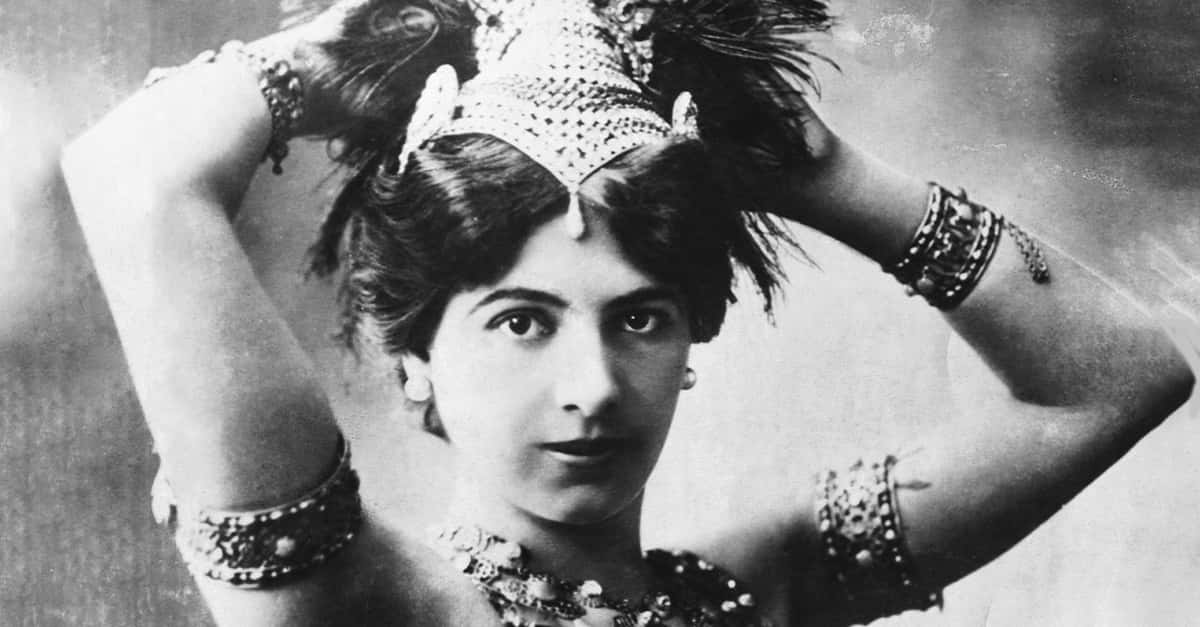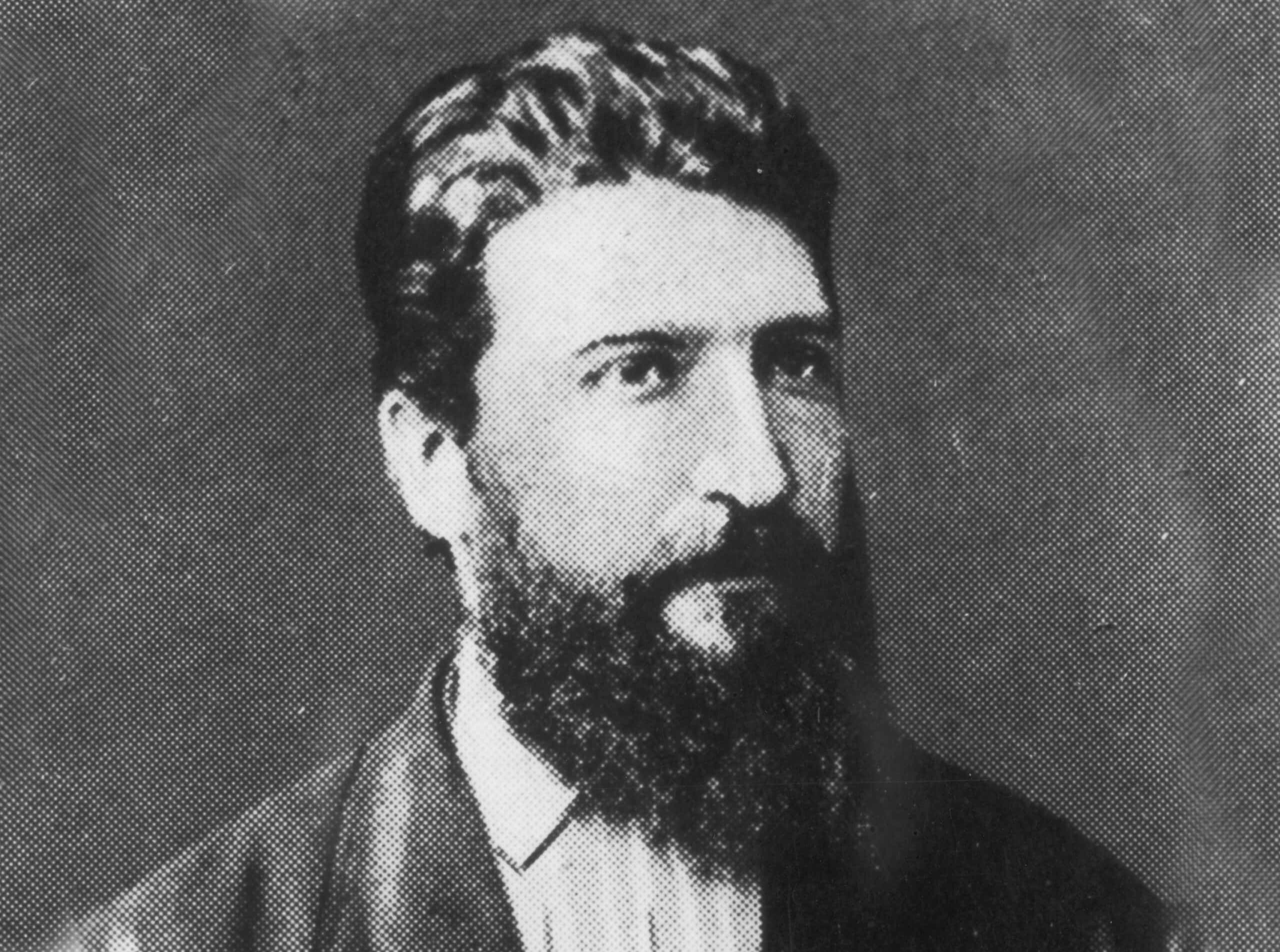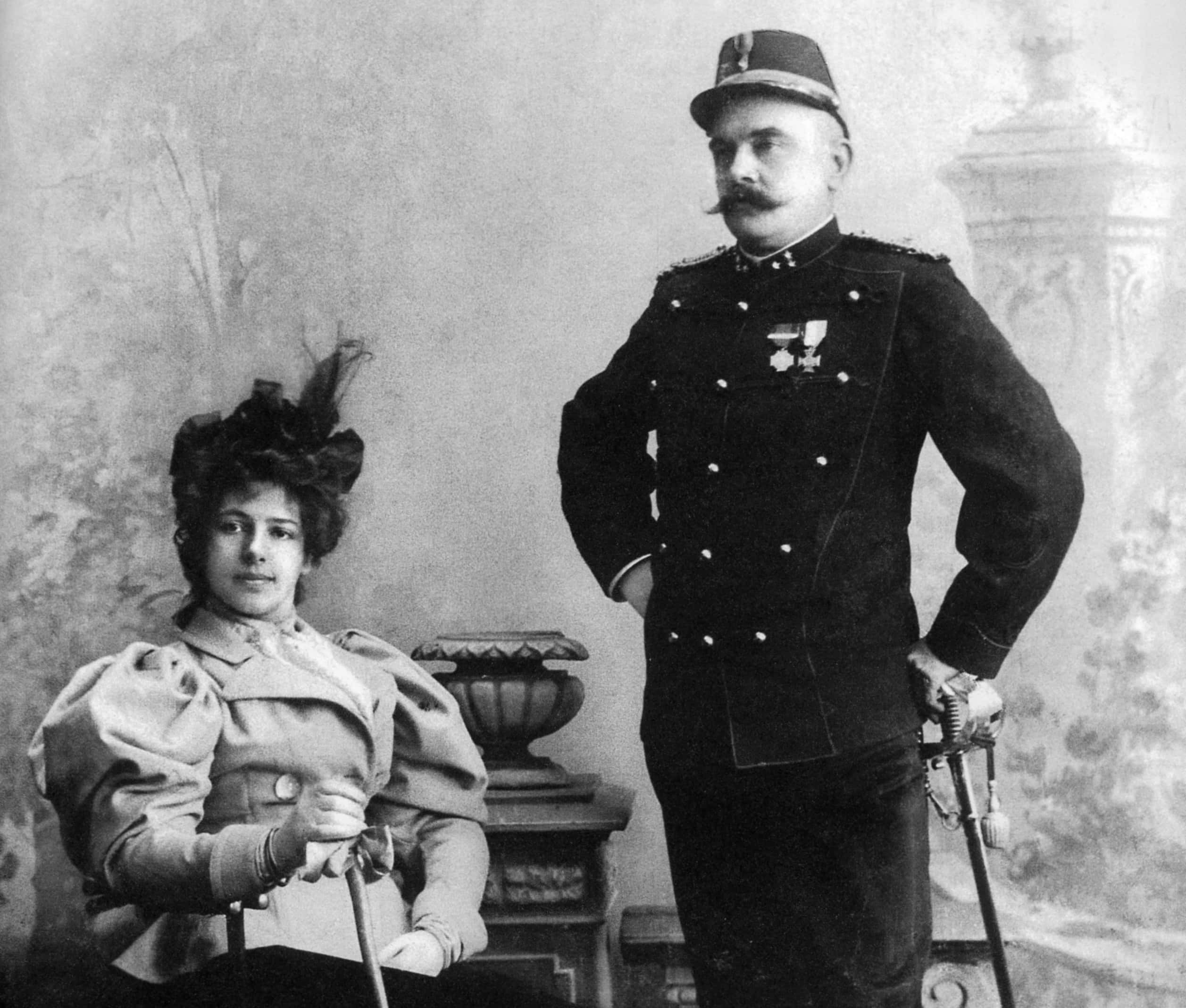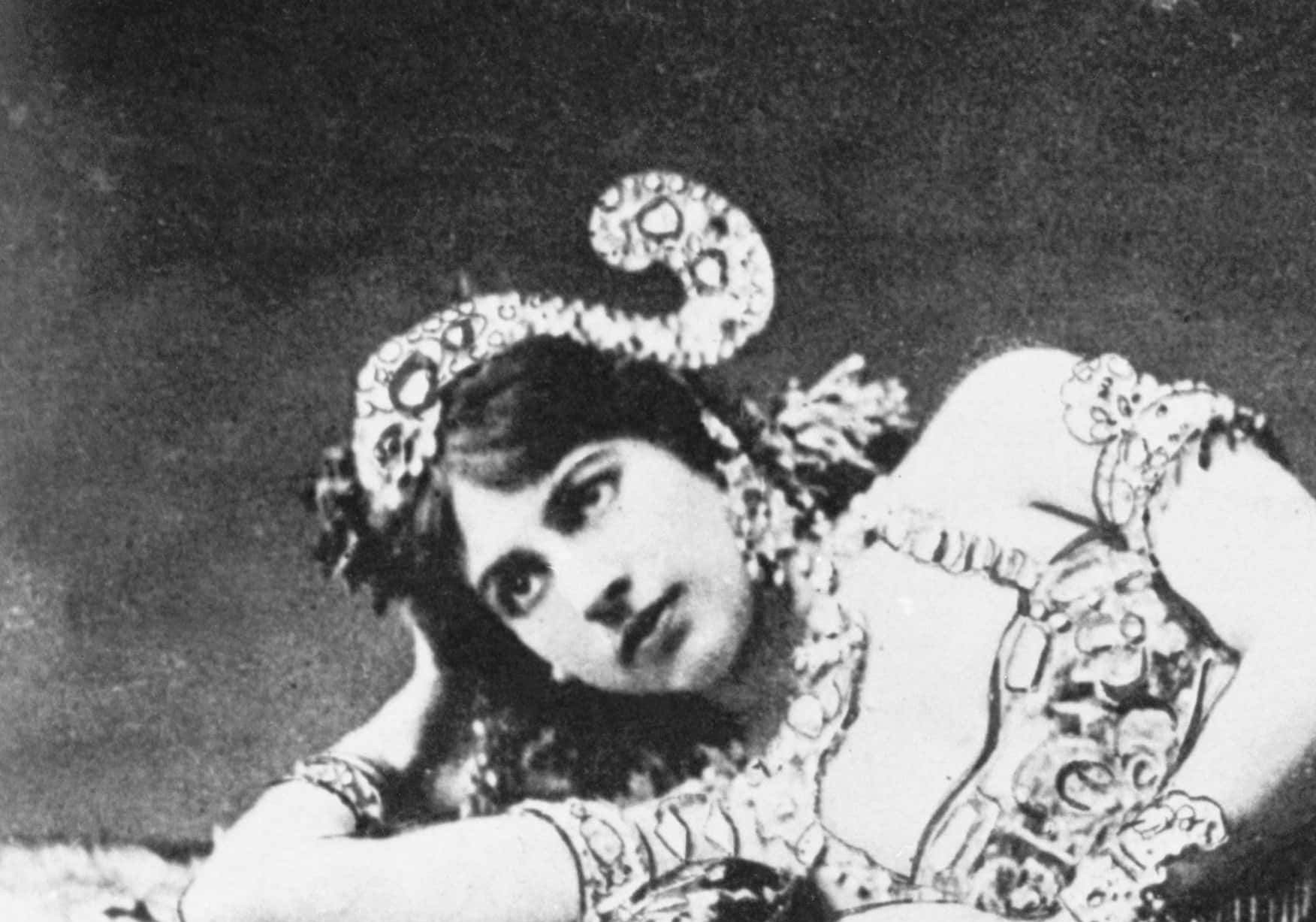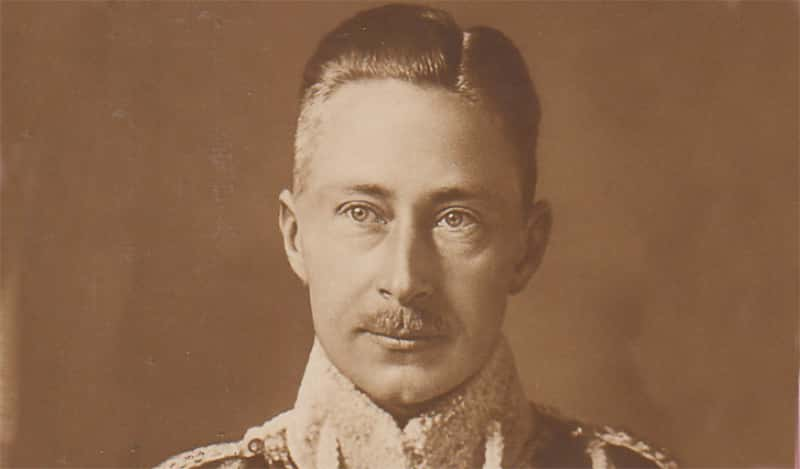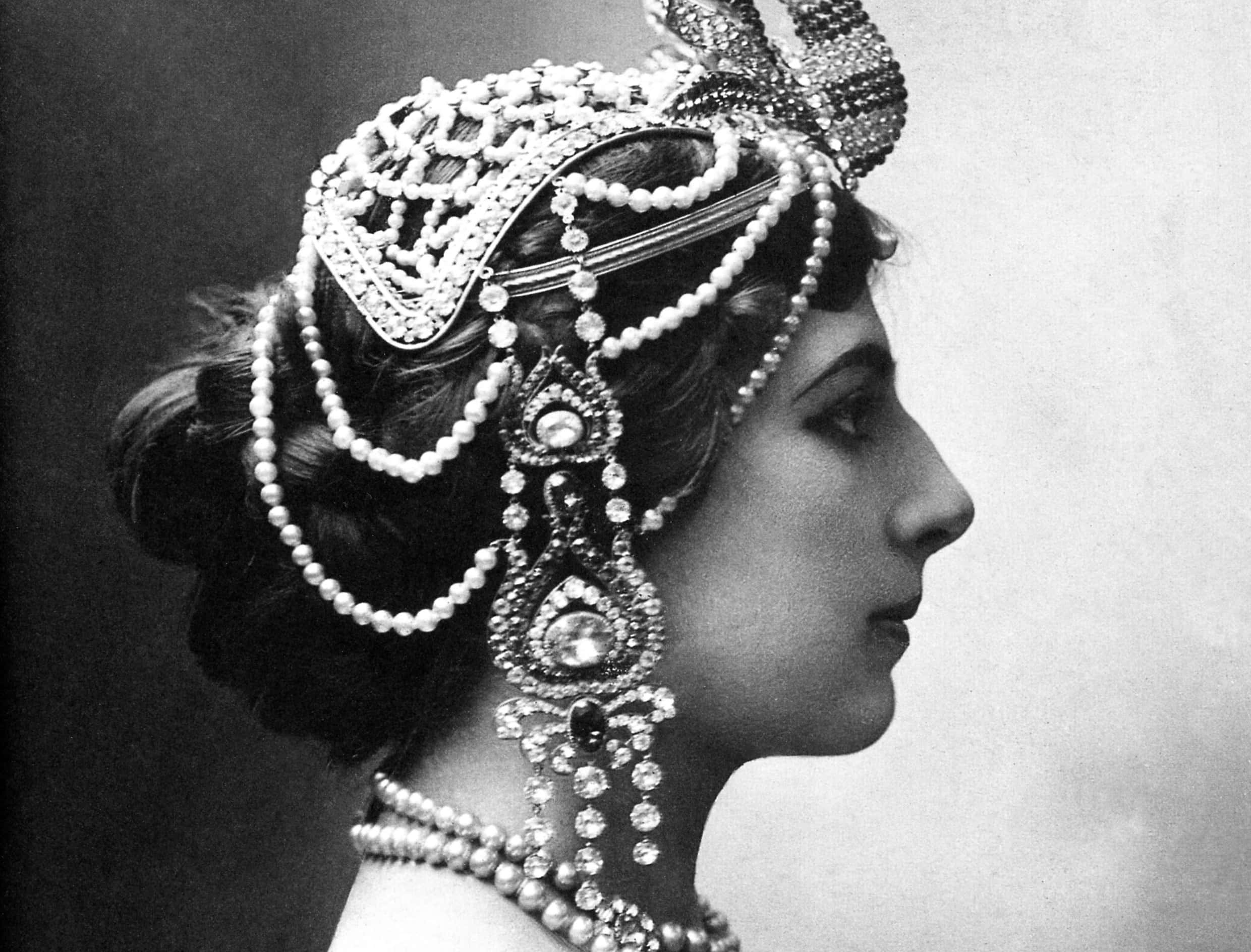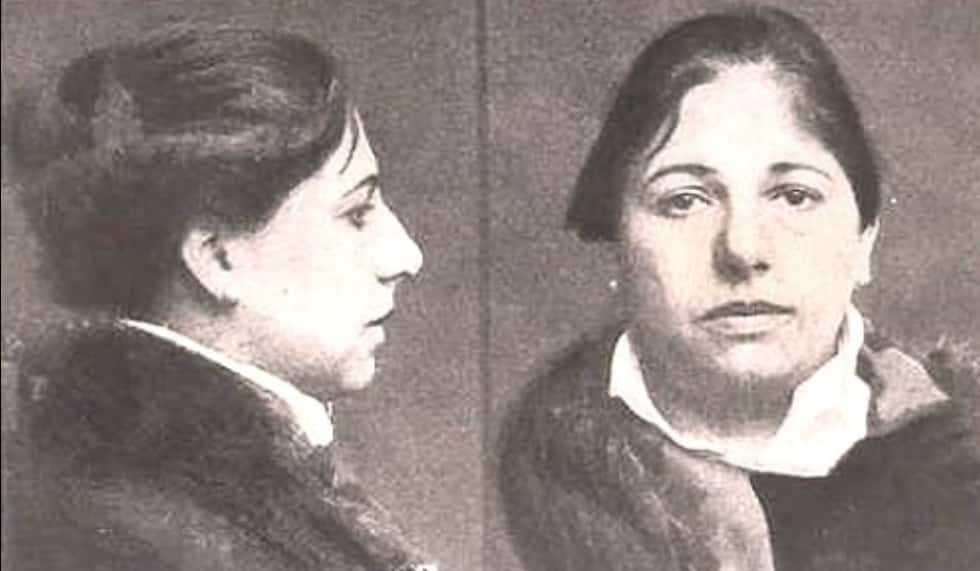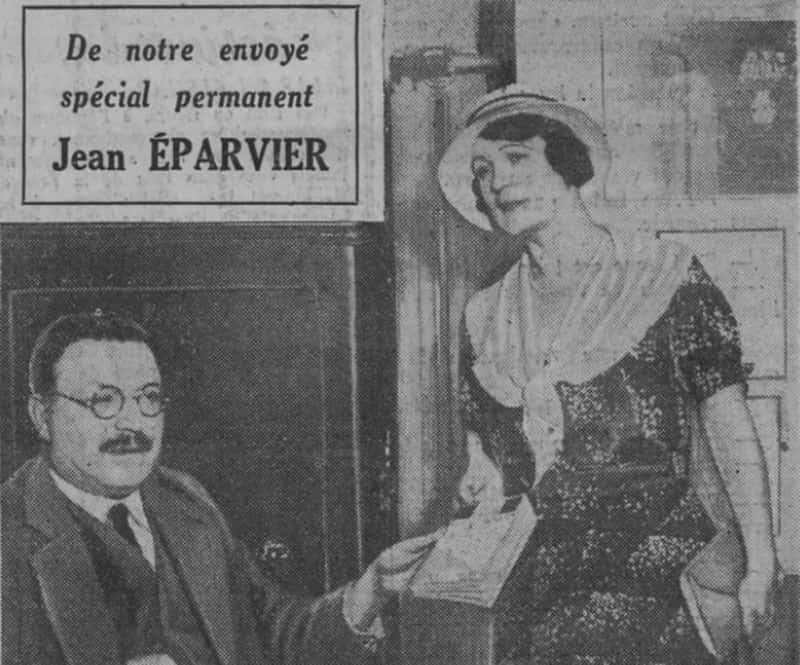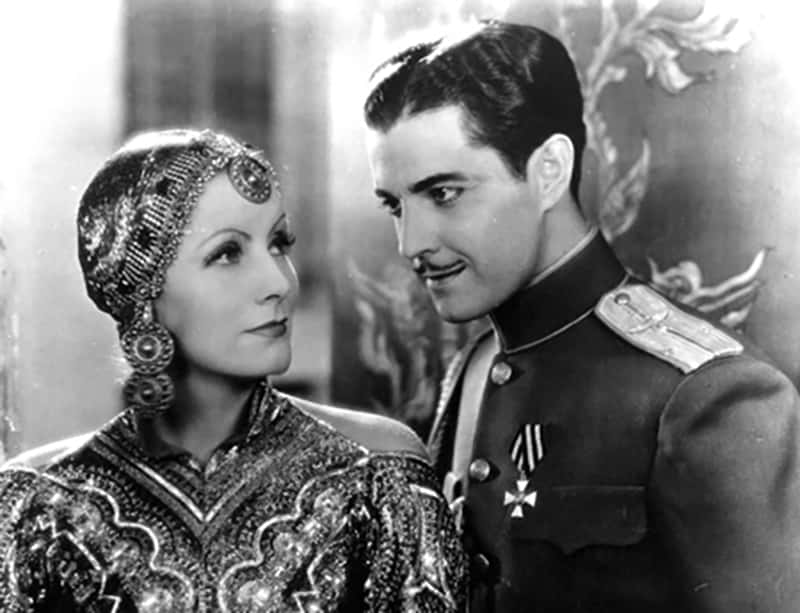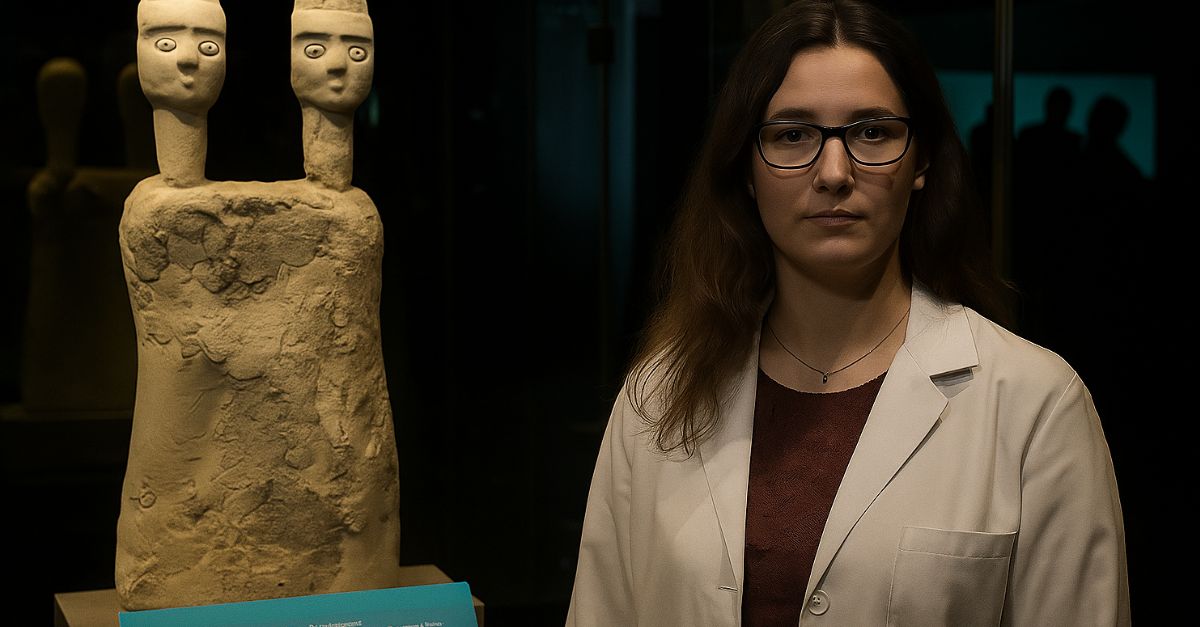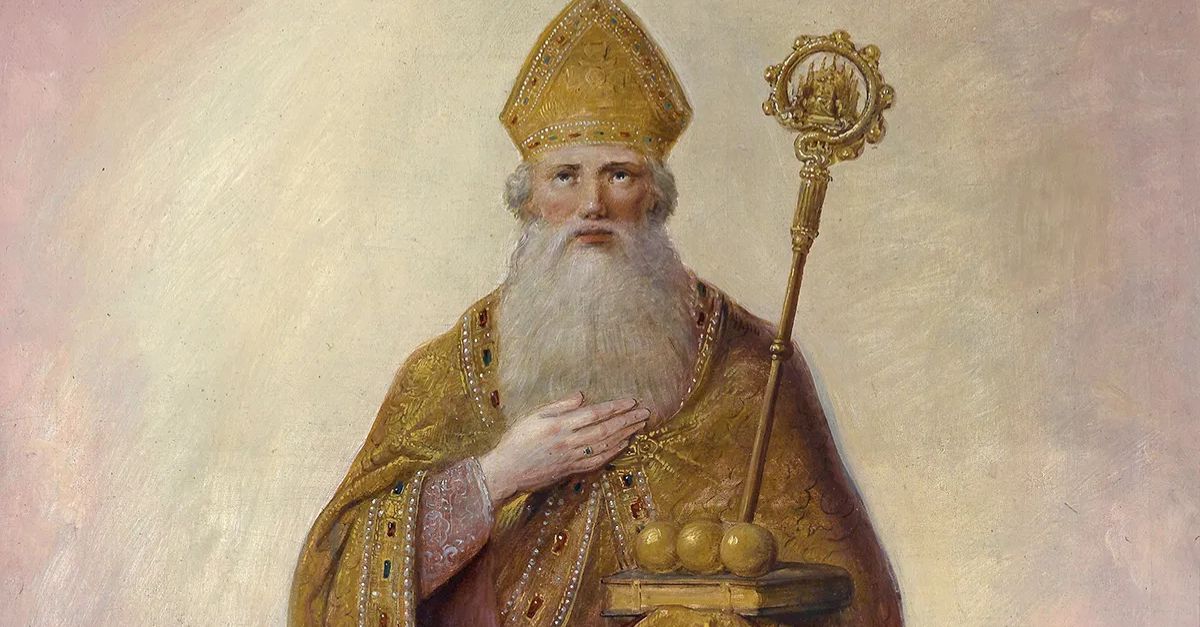Mata Hari is one of history's ultimate femme fatales. She gained fame for her seductive dancing, only to be executed by the French for being a double agent. These days, her name is a byword for badly-behaved women, but beneath all the hype, what do we know about Mata Hari? Where did she come from, and did she really do everything she was accused of? We're uncovering the secret history of Mata Hari, the world's most infamous seductress.
1. Her Roots Are Surprising
Mata Hari's actual roots couldn't be further from her glamorous femme fatal image. She entered the world as Margaretha Zelle on August 7, 1876 in the Dutch city of Leeuwarden. She was the only daughter of four children born to Adam Zelle and Antje van der Meulen. Her backstory sounds bland, but even before she became a dancing double agent, little Margaretha's life was full of twists and turns.
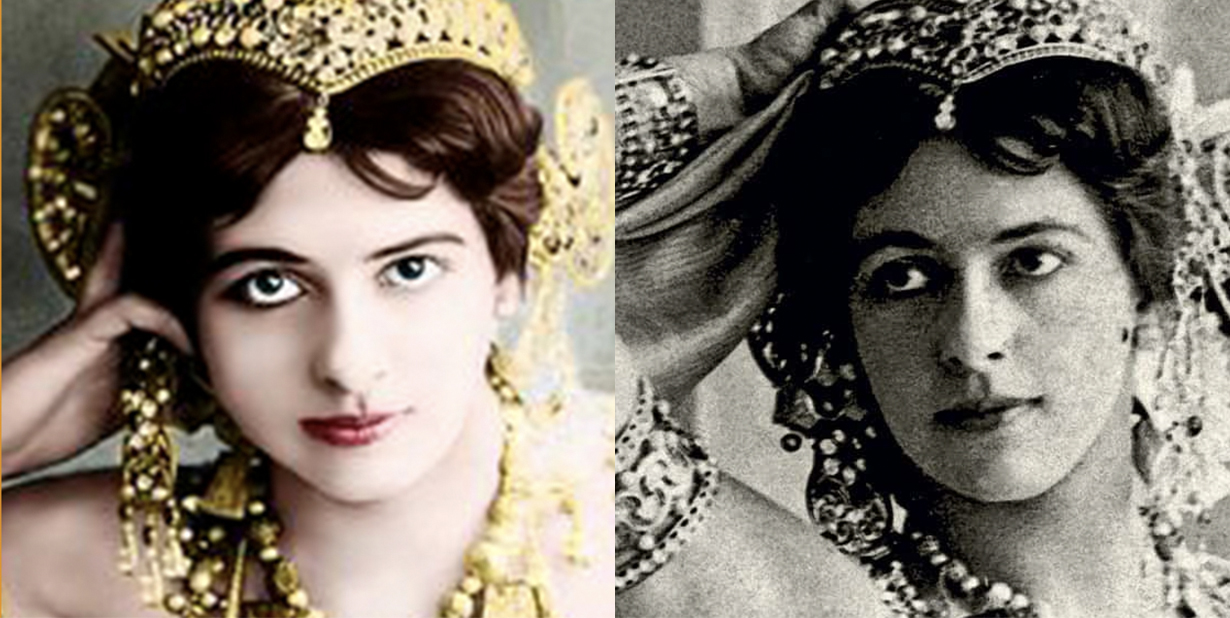
2. She Lived the High Life
Hari’s childhood was initially very affluent thanks to the fact that her father owned a successful hat shop and invested his money into the oil industry. With the family's new cash injection, young Hari received private schooling and made her neighbors jealous by riding around town in a custom carriage. You know what they say, there's money in hats and oil (maybe mostly in oil). Sadly, Hari's privileged upbringing wouldn't last for long.
 Mata Hari (2016–2017), Star Media
Mata Hari (2016–2017), Star Media
3. Everything Came Crashing Down
In 1889, Hari's entire life changed. Her father's investments plunged and virtually overnight, the family went bankrupt. Hari's days as a privileged little girl in expensive dresses were officially over—and from there things only got worse. Hari's parents split up after the family's stocks crashed, but soon they'd be torn apart by something far worse than money problems.
4. She Lost a Loved One
In 1891, after going from rags to riches then back to rags again, Hari suffered yet another loss. When she was 15 years old, her mother departed from this life. Somehow, even after that, Hari’s family troubles continued. Her father remarried in 1893, but the newlyweds didn't provide a happy home for young Hari. They sent the grieving teenage girl away from beloved brothers and ordered that Hari move in with her godfather. Looking back, this was a very bad call.
 Mata Hari (2016–2017), Star Media
Mata Hari (2016–2017), Star Media
5. She Experienced Injustice
When she was a young woman, Hari trained to be the exact opposite of her actual career path: She worked as a kindergarten teacher. However, this came to a halt when the school's headmaster began flirting with her. Upset about the situation, Hari’s godfather had her removed from her position. The man who pushed Hari out? Obviously he got to stay. Feeling defeated, Hari decided she needed a change. She went to live with her uncle in the Hague, where she met a man far worse than her lecherous old boss.
6. She Had a Dicey Romance
When Mata Hari was 18 years old she read a newspaper advertisement by a 38-year-old man named Rudolf MacLeod. The Dutch Colonial Captain was stationed in what is now Indonesia and evidently, he felt lonely. He wanted a wife. When a teenage Mata Hari responded to the ad in 1895, her reply kicked off a whirlwind romance. Six days later, MacLeod and Hari were engaged; four months later, they were married. Though Hari didn't know it at the time, she'd just walked down the aisle with a monster.
 Mata Hari (2016–2017), Star Media
Mata Hari (2016–2017), Star Media
7. Her Marriage Was Hellish
Hari’s life with MacLeod was nothing short of disastrous. After the newlyweds moved to Indonesia in 1897, Hari realized that not only was her husband a raging alcoholic, he was an utterly vicious man. MacLeod repeatedly showed aggression towards Hari, belittling her, spitting on her, and pushing her around. Seemingly on a mission to be the worst husband ever, MacLeod also kept mistresses. Just three weeks after Hari and MacLeod's wedding, he openly admitted to cheating on his wife with not one but two women.
 Mata Hari (2016–2017), Star Media
Mata Hari (2016–2017), Star Media
8. She Had an Affair
Distressed by her husband's behavior and desperate for love, Hari looked for affection beyond her marriage. She left MacLeod for one of her husband's co-workers, a fellow Dutch officer named Van Rheedes. With a new man by her side, Hari started following her passion for Indonesian traditions, Hinduism, and dance routines. Soon enough, the woman known as Margaretha Zelle wrote to her family and declared that she had a new name: Mata Hari. At this point, life was good but surprise surprise, the happy times didn't last.
 Mata Hari (2016–2017), Star Media
Mata Hari (2016–2017), Star Media
9. She Made a Terrible Mistake
For reasons that are hard to understand, Hari broke off her tryst with Van Rheedes and went back to her horrible husband around 1898. While pleading with Hari to return, MacLeod claimed that he had changed. When she returned, Hari learned that was a lie. MacLeod continued to beat her, cheat on her, scream at her in public, threaten her life by pointing a pistol at her face, and, soon enough, do something worse than any of these things combined.
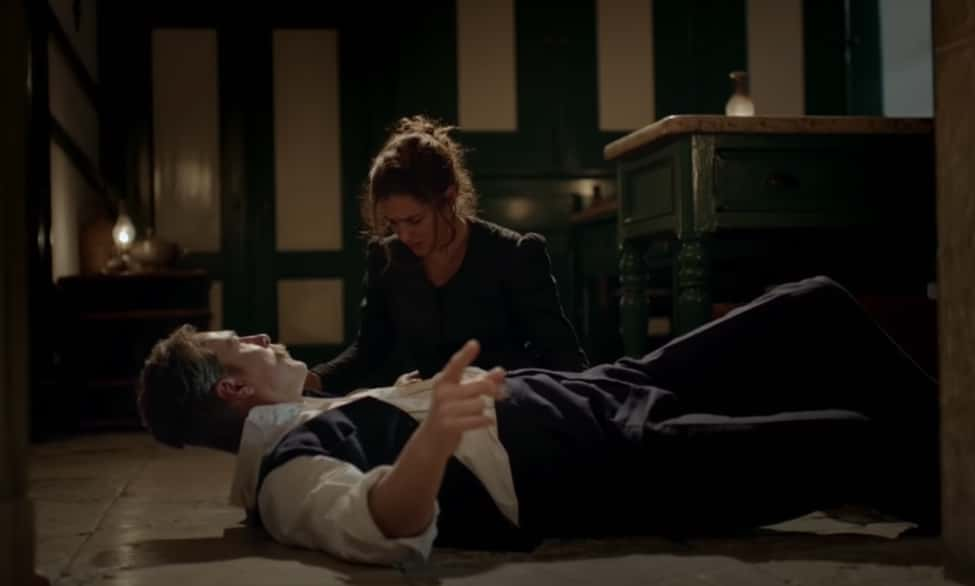 Mata Hari (2016–2017), Star Media
Mata Hari (2016–2017), Star Media
10. Her Husband Was a Monster
On one utterly disturbing Sunday afternoon, Hari came home to find her husband "crazed and deranged" with fury. MacLeod unveiled a sharp-edged tool in front of his distraught wife aiming to cease her existence. As Hari wrote in a letter, “I owe my life to a chair that fell over and which gave me time to find the door and get help". Get out of there Hari!
 Mata Hari (2016–2017), Star Media
Mata Hari (2016–2017), Star Media
11. Her Children Were Doomed
Over their years in matrimonial disharmony, MacLeod and Hari welcomed two young tykes: A son named Norman-John and a daughter named Louise Jeanne. While MacLeod adored his children, he continued to treat Hari horribly—and in time, his behavior would have brutal consequences on the entire family. In 1899, both infants became terribly sick and sadly, little Norman-John perished at just two years old.
The loss was tragic, but the circumstances behind Norman-John's demise were even more disturbing.
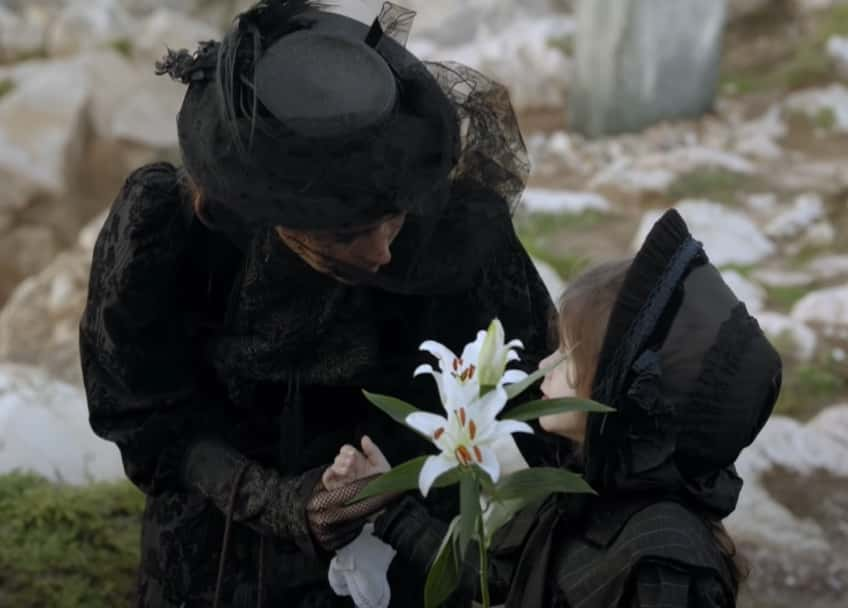 Mata Hari (2016–2017), Star Media
Mata Hari (2016–2017), Star Media
12. She Was Betrayed
MacLeod and Hari vigorously blamed the family's nanny for the loss of their young son. The distraught husband and wife claimed that their employee, in a fit of deranged anger, cruelly poisoned the innocent infants. But because there's very little evidence to support this theory, some sources speculate that something else happened. One of MacLeod's enemies lashed out and poisoned his rival's kids. However, most scholars believe a far sadder version of events.
13. She Received a Disturbing "Gift"
At some point during MacLeod and Hari's time in the East Indies, MacLeod gave his wife a "gift" that she'd never forget: Syphilis. All MacLeod's philandering finally caught up to him and once he was infected, it didn't take long for him to pass the disease onto his innocent wife and soon enough, his innocent children. That should have been the lowest point in the MacLeod/Hari family drama saga, but unfortunately, it was just the beginning.
 Mata Hari (2016–2017), Star Media
Mata Hari (2016–2017), Star Media
14. Her Family Suffered
Scholars believe that after MacLeod and Hari passed their syphilis to their children, the parents desperately tried treat the illness. Sadly, their efforts failed. Instead of helping the children, the treatment caused severe complications to arise. Ultimately, these complications resulted in young Norman-John losing his life, while little Louise Jeanne barely managed to sustain hers. And sadly, that's not the end of it.
While Louise Jeanne survived her 1899 illness, she did not emerge unscathed. She perished in 1919 when she was only 21 years old. The cause for her demise? Once again, complications from syphilis. MacLeod's adultery had doomed his entire family.
 Mata Hari (2016–2017), Star Media
Mata Hari (2016–2017), Star Media
15. She Concocted a Story
If little Norman-John perished of syphilis-related complications, why did his parents concoct a story about a psycho nanny or a workplace rival? While we'll probably never know, there are two plausible possibilities for these tales. Either MacLeod and Hari knew they were to blame and desperately tried to cover it up, or their guilt so intense that they lived in shell-shocked denial. Either way, nothing could bring their son back.
 Mata Hari (2016–2017), Star Media
Mata Hari (2016–2017), Star Media
16. She Was a Haunted Woman
Shocker: The havoc that MacLeod wreaked on his family permanently changed the way Hari thought about love. Years later, she wrote about how her husband's brutal treatment haunted her and made her dislike all intimate activity. This was ironic, given Hari's reputation as an internationally-renowned seductress—but now that you know about the destruction MacLeod left in his wake, Hari's sombre view of love probably makes a lot more sense.
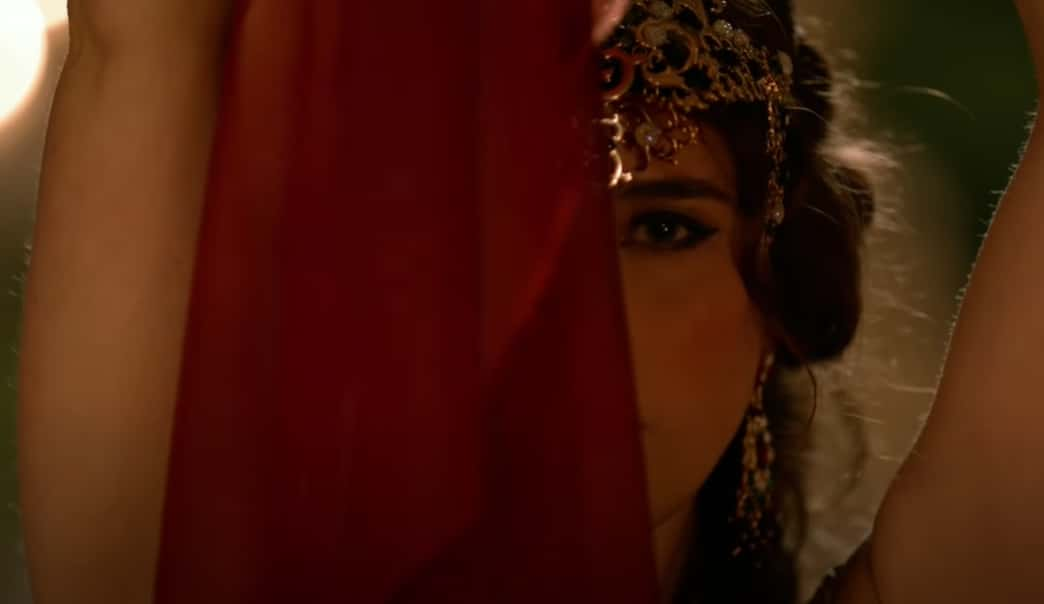 Mata Hari (2016–2017), Star Media
Mata Hari (2016–2017), Star Media
17. Her Husband Wanted to Destroy Her
Shortly after moving back to the Netherlands in 1902, Hari and MacLeod finally separated. But when it came to divorce, things got a lot more complicated. MacLeod didn't want to let go of his bride—and in 19th-century Europe, a husband could make it very hard for his wife to escape a bad marriage. When Hari tried to divorce her husband, MacLeod got the court to throw out her suit. But while Hari was on the stand, she made sure to put her husband's bad behavior on the record.
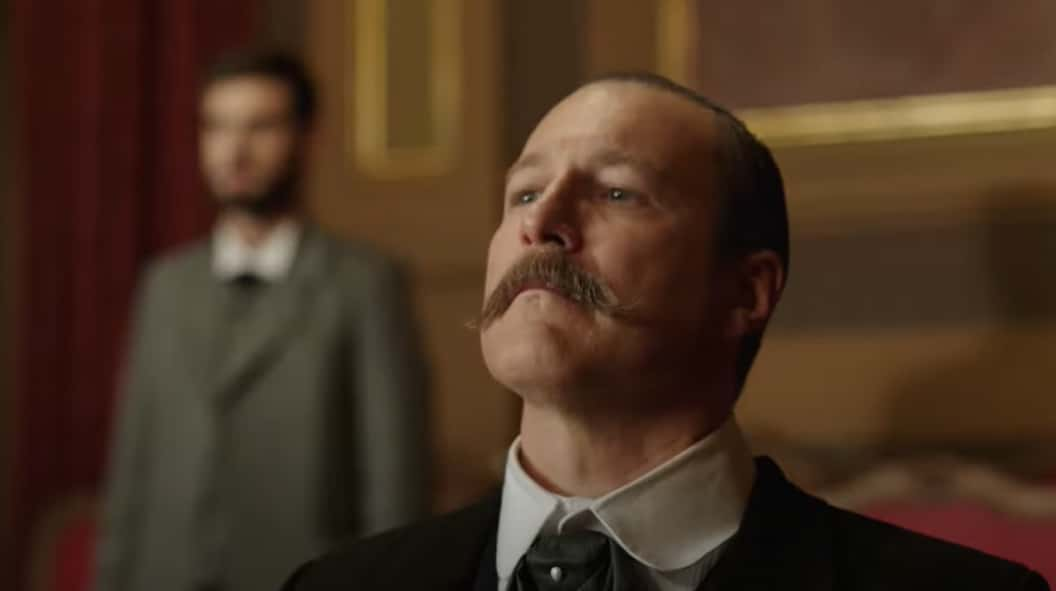 Mata Hari (2016–2017), Star Media
Mata Hari (2016–2017), Star Media
18. She Revealed The Truth
At Mata Hari's sensational divorce trial, she confirmed that behind closed doors, her husband was an absolute monster. According to one source, MacLeod would get Hari to seduce wealthy gentlemen. Once the pair were in bed, MacLeod would open the bedroom door and pretend to be furious that he'd caught his wife in the act. He'd then blackmail Hari's gentlemen callers into giving him enormous sums of money to keep their affairs a secret.
 Mata Hari (2016–2017), Star Media
Mata Hari (2016–2017), Star Media
19. Her Husband Lashed Out
It took until 1906 for Hari to finally get an official separation from MacLeod, but the road to freedom was brutal. When Hari abandoned her husband and struck out on her own, MacLeod ran Hari's name through the mud. Among other cruel acts, he went so far as to buy ads telling shopkeepers not to sell his estranged wife products. In short, MacLeod made life miserable for Mata Hari—and then, one day, he went even further.
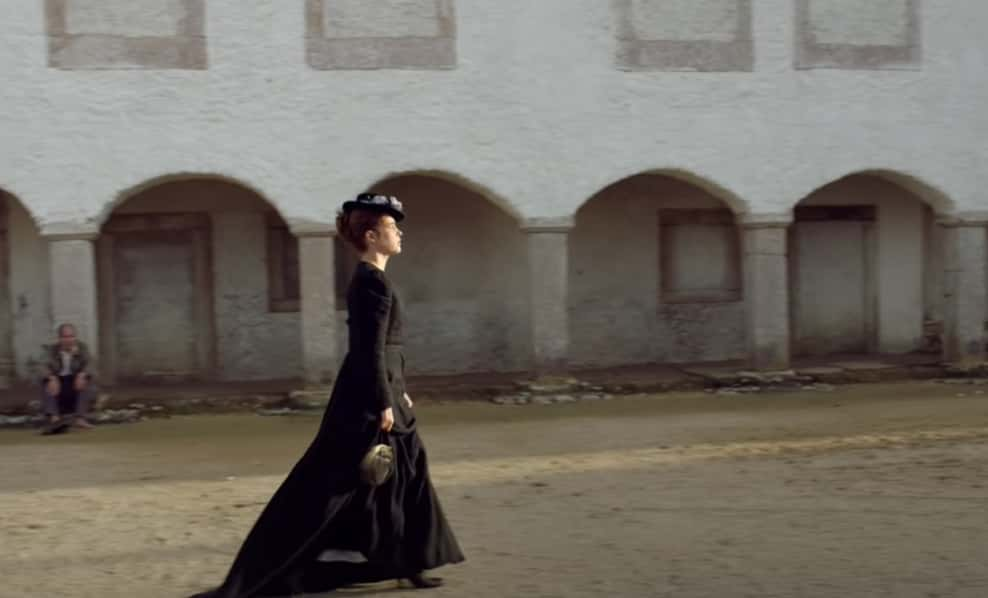 Mata Hari (2016–2017), Star Media
Mata Hari (2016–2017), Star Media
20. She Was Desperate
Despite MacLeod's harshness, Hari was overjoyed to finally be free from her abusive husband and, even more so, to be granted sole guardianship of her young daughter Louise Jeanne. But even after the courts found in favor of Hari, MacLeod didn't back down. He simply refused to provide child support, putting Hari in a terrible situation. She needed to provide for Louise Jeanne, but as a single woman in the early 1900s, it was virtually impossible to make a living. Desperate, she tried to find a way to keep her baby and stay away from her cruel ex—but her efforts were all for naught.
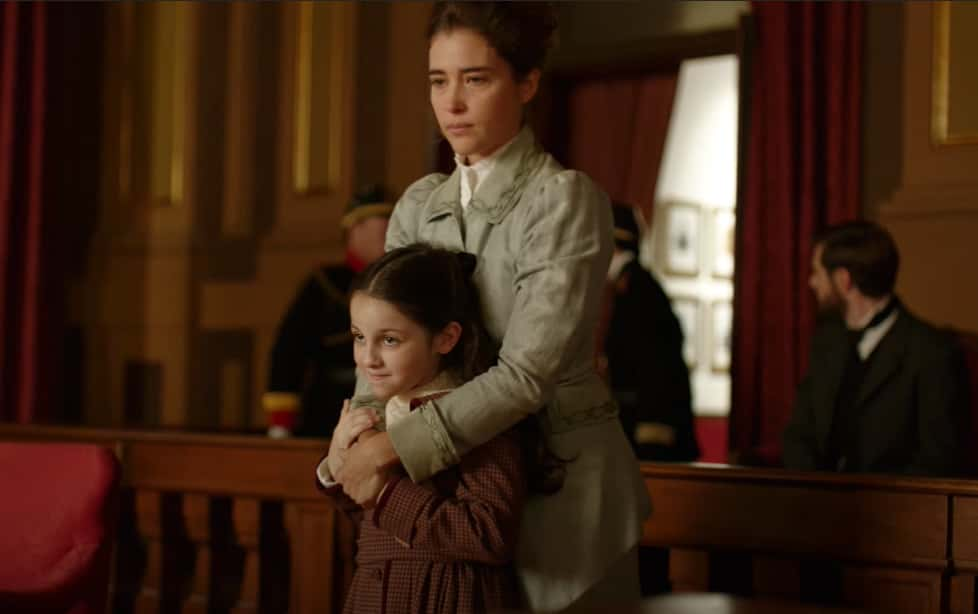 Mata Hari (2016–2017), Star Media
Mata Hari (2016–2017), Star Media
21. She Made a Tough Choice
One day, Louise Jeanne was visiting her father when MacLeod simply refused to bring the young girl back to her mother. For Hari, this was the straw that broke the camel's back. At this time, she just couldn't provide for her daughter, so she made the hard decision to give Louise Jeanne back to her ex-husband. It was far from a perfect decision, but this way, her daughter would receive a better upbringing that Hari could have given her.
After this brutal defeat, Hari decided to reinvent herself and create her own destiny. Once she was strong enough, she'd get her daughter back.
 Mata Hari (2016–2017), Star Media
Mata Hari (2016–2017), Star Media
22. She Struggled to Survive
In 1903, Hari moved to Paris to make some kind of living. She tried to get a respectable job and lived very frugally, saving every cent for her quest to get Louise Jeanne back. Hari taught piano to students, gave German lessons, and tried to become a genteel servant, but nothing worked out. And so, as she became more desperate, she turned to more profitable (if less demure) jobs. She began to ride horses for a circus and moonlighted as a barely-clad art model. Times were tough—and unfortunately, they'd only get tougher.
 Mata Hari (2016–2017), Star Media
Mata Hari (2016–2017), Star Media
23. Her In-Laws Hated Her
During this time, Mata Hari wasn't Mata Hari just yet. Instead, she went by a delightfully petty stage name: "Lady MacLeod". This move definitely didn’t please her husband or in-laws, though given all that she’d had to endure in her marriage, we’re not going to condemn her for hurting their feelings. And if they were mad about Hari being a model and a circus performer, they'd be furious about her next career move.
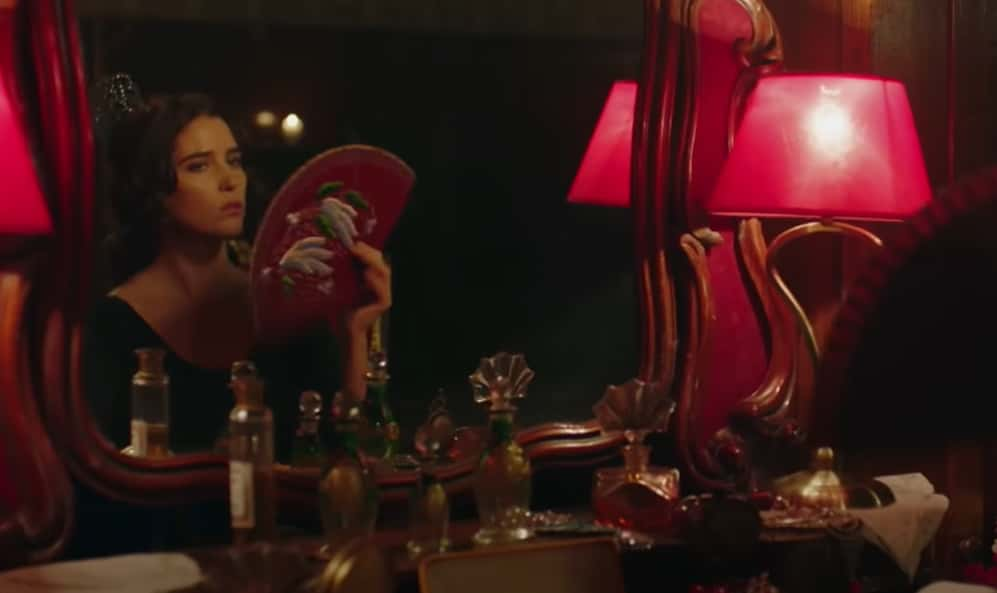 Mata Hari (2016–2017), Star Media
Mata Hari (2016–2017), Star Media
24. She Hit Rock Bottom
At this point, Mata Hari hit rock bottom. To make ends meet, she turned to bedroom work. Hari knew exactly how this looked and desperately begged her friends not to judge her. As she wrote, "Don’t think that I’m bad at heart. I have done it only out of poverty". Unfortunately, poverty would continue to haunt Mata Hari for the foreseeable future.
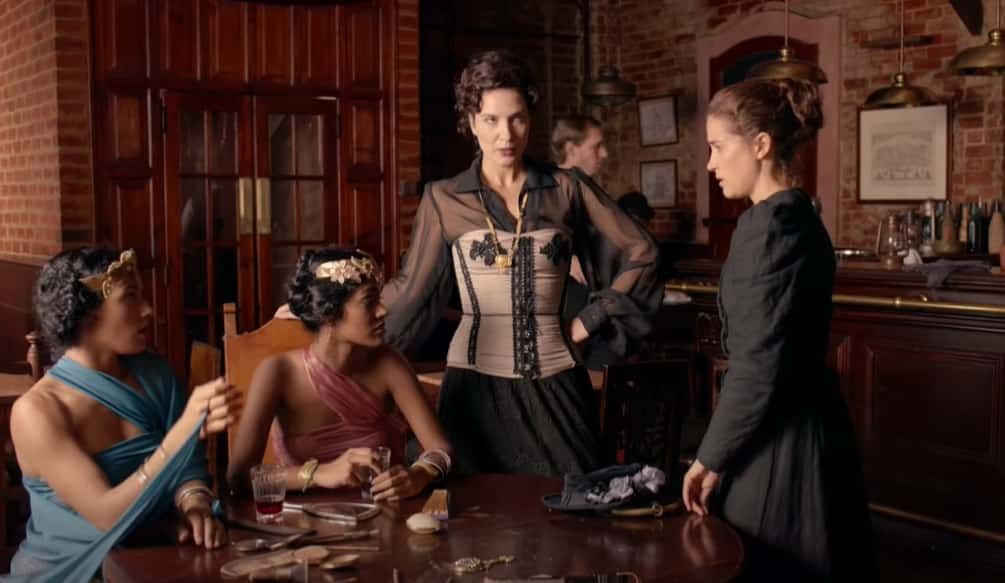 Mata Hari (2016–2017), Star Media
Mata Hari (2016–2017), Star Media
25. She Was Distraught
After years of trying to save enough money to fight MacLeod and get her daughter back, Hari was exhausted. By March of 1904, she wrote a heartbreaking letter, in which she admitted that she was thinking of ending her life. Thankfully, Hari made it through this dark time. When she emerged on the other side, she was virtually unrecognizable.
 Mata Hari (2016–2017), Star Media
Mata Hari (2016–2017), Star Media
26. She Rebranded
In the early 1900s, Hari left the circus and the theater and entered the scandalous world of exotic dancing. Once there, she acquired a booking agent named Gabriel Astruc and with him by her side, Hari quickly made her mark. For the next ten years, Austruc's savvy management and Hari's seductive moves sent Parisian audiences into hysterics. It's at this point that "Lady MacLeod" officially becomes the inimitable "Mata Hari".
 Mata Hari (2016–2017), Star Media
Mata Hari (2016–2017), Star Media
27. She Sold Her Story
Just who was the mystical "Mata Hari"? In early 20th-century Paris, this was the question on everyone's lips. The character of Mata Hari drew on Hari's time in Indonesia. She appropriated the culture and created an outrageous backstory for herself. Hari posed as a lost Hindu princess who learned exotic routines like "The Dance of the Seven Veils" in her childhood. It was a wild tale—but Parisian audiences fell for it hook, line, and sinker. Mata Hari had officially arrived—and she was a sensation.
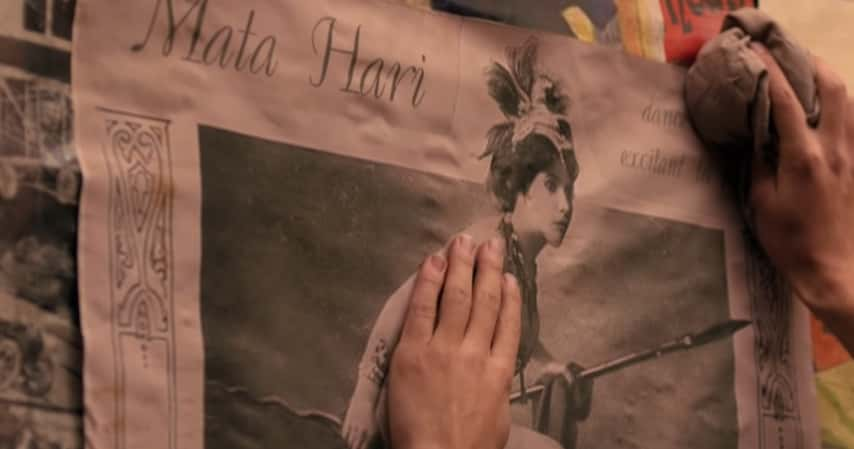 Mata Hari (2016–2017), Star Media
Mata Hari (2016–2017), Star Media
28. She Was a Sensation
After her spellbinding debut on March 13, 1905, Mata Hari became an overnight success. Her act was simple: She'd slink onto the stage with a series of thin fabrics cloaking her curvaceous body, and over the course of her dance, she would coyly removed layer after layer. By the end, Hari was clad only in an elaborate golden headdress, glittering armbands, and her trademark bejewelled bra. On stage, Hari's seductive, playful persona made her a star. Off stage, however, things were a little more complicated.
29. She Had a Secret
Despite being an infamous temptress, Hari was self-conscious about her small bust, especially given her line of work. Because of this, she rarely removed her bra, even during her raciest pictures and dance routines. Everything else came off—but the bra stayed on. Looking back, that was probably a good idea. It turned out that Hari had a powerful enemy just waiting for her to slip up and go from "exotic dancer" to "straight-up harlot".
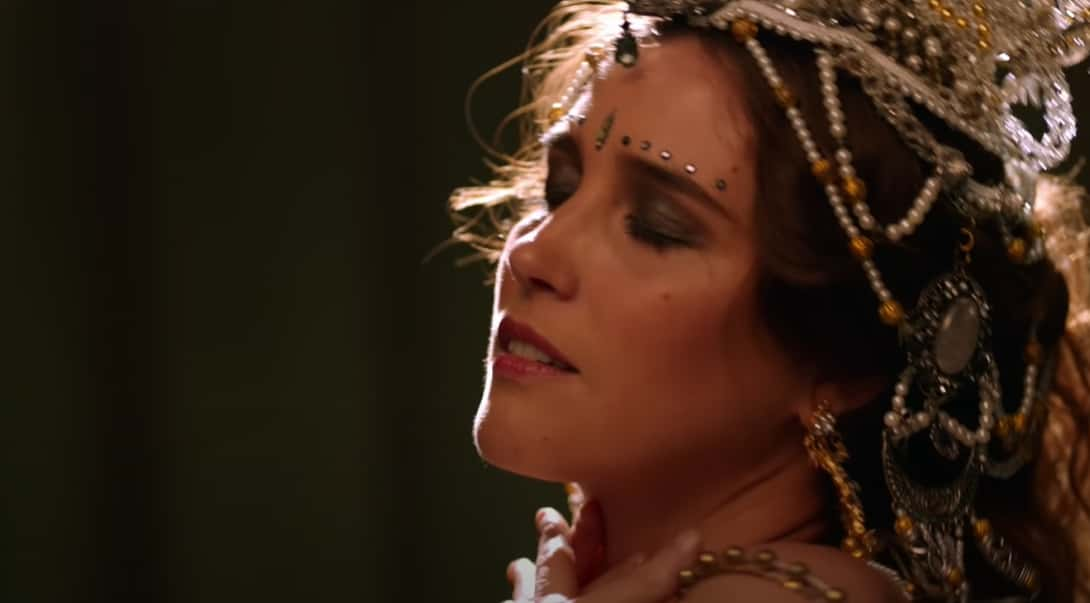 Mata Hari (2016–2017), Star Media
Mata Hari (2016–2017), Star Media
30. Her Ex Lashed Out
Surprise, surprise, Hari's ex-husband MacLeod didn't love that she was making such a splash over in Paris. He seemed determined to destroy her life—and he knew exactly which buttons would push Hari to her breaking point. MacLeod allegedly got his hands on some of Mata Hari's risque boudoir photos and took them to court to prove that she was an unfit mother.
 Mata Hari (2016–2017), Star Media
Mata Hari (2016–2017), Star Media
31. She Became a Mistress
During Hari’s time as an exotic dancer, she lined her pockets by becoming a high-society mistress. She had liaisons with many well-to-do gentlemen and eventually became the mistress of Herr Kepert, a rich German businessman. While their relationship only lasted for a year, they remained friends for long after. Sadly, this connection would have devastating consequences on Hari later in life. Dear reader, remember the name Herr Kepert.
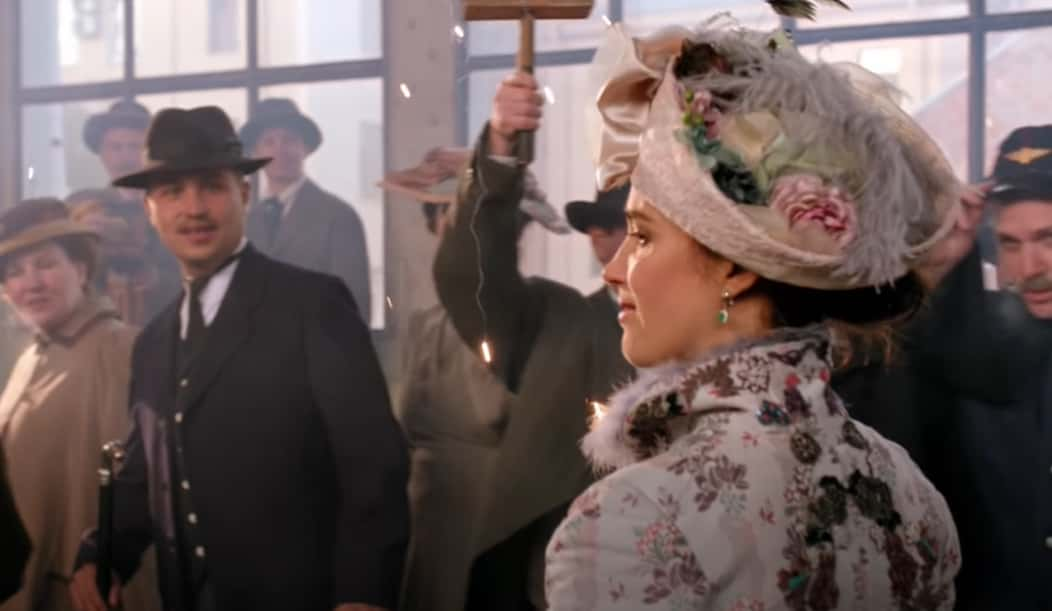 Mata Hari (2016–2017), Star Media
Mata Hari (2016–2017), Star Media
32. She Had Wealthy Paramours
After leaving her German sugar-daddy, Hari moved onto an even bigger catch: Émile Étienne Guimet. This handsome industrialist was a charming high-society gentleman, who also, no biggie, happened to be a millionaire. To be honest, we can't blame Hari for seeking some kind of financial stability—but soon enough, her fortunes would change.
 Mata Hari (2016–2017), Star Media
Mata Hari (2016–2017), Star Media
33. She Became Unhinged
Even when she was living the high life, Hari never forget her beloved daughter Louis Jeanne. She sent her dozens of letters, only to get them back in her mailbox, unopened. MacLeod simply wouldn't let Hari have a relationship with her daughter and coldly shut down all of Hari's attempts to visit "Little Non"—her pet name for Louise Jeanne. With each of MacLeod's refusals, Hari became more desperate. Driven to desperation, she made an unsuccessful attempt to abscond with her own daughter.
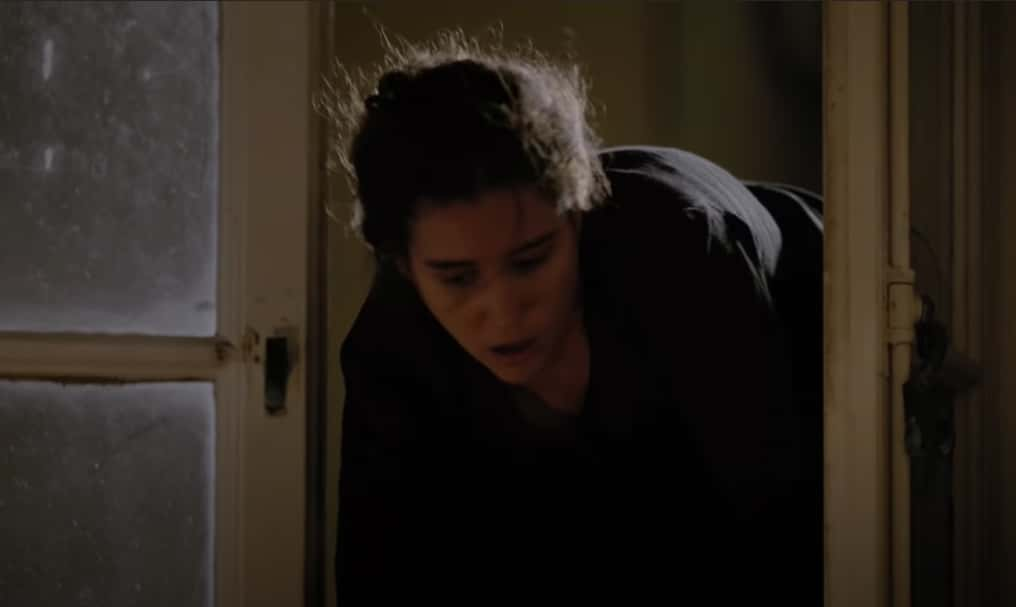 Mata Hari (2016–2017), Star Media
Mata Hari (2016–2017), Star Media
34. Her Fans Turned On Her
The name "Mata Hari" means "eye of the day" or "sun" in the Malay language. In her early days as a dancer, the name was fitting: Hari's career was very much like a rising sun. She went on tour to places like Berlin, Monte Carlo, and Vienna, making a splash wherever she performed—but by 1910, her fame declined. The great "sun" of Mata Hari began to set.
 Mata Hari (2016–2017), Star Media
Mata Hari (2016–2017), Star Media
35. Her Fortunes Changed
The vicious backlash against Hari hit fever pitch around 1910. While modern scholars argue that Mata Hari brought a veneer of class to the art of exotic dancing, back in 20th-century Paris, people had other ideas. Some social circles began to criticize Hari for "cheaply" using her body to bring in the crowds instead of possessing any genuine talent. Even if Hari's haters were judgy prudes, their approval mattered a great deal. After the backlash, Hari's career as an exotic dancer stalled.
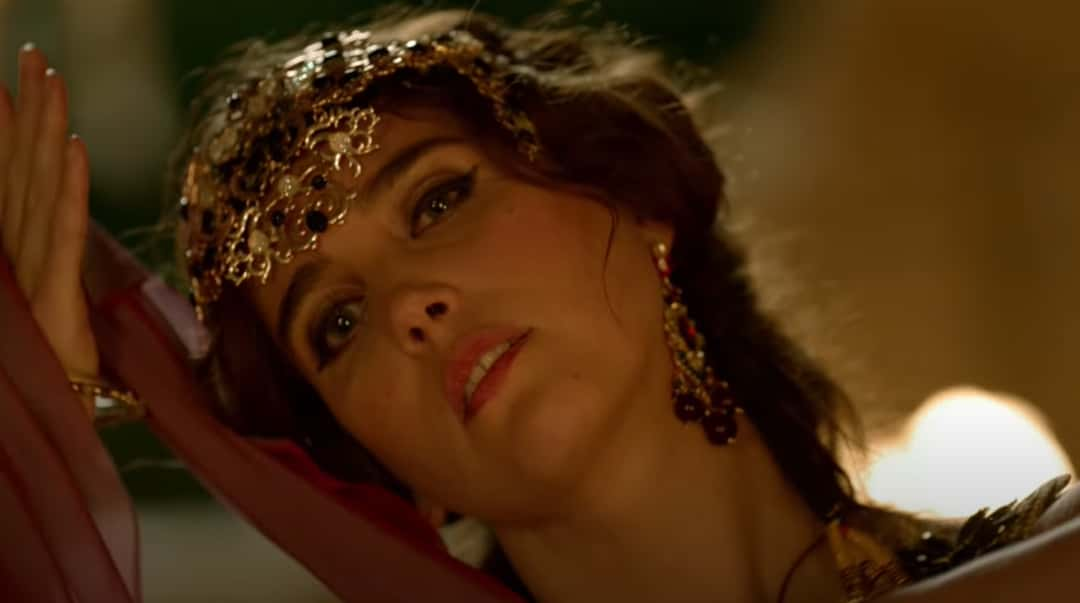 Mata Hari (2016–2017), Star Media
Mata Hari (2016–2017), Star Media
36. The Press Soured
It also didn’t help that Hari was beginning to showing her age, which sadly caused audiences to lose interest. In a story that will make any woman cringe, the Russian ballet wanted Hari to perform in their show. After asking her to bare all so their costume designer could make her a custom garment, the ballet apparently didn't like what they say. They effectively ghosted her. With that final insult, Hari's days in the sun were officially over.
37. She Went Out With a Bang
After almost a decade on stage, Hari had certainly made her mark. Before her, "Oriental" dances and burlesque routines were unheard of. After, they were all the rage. As young competitors clamored to take Hari's place, she decided to quit while she was semi-ahead. Mata Hari's final performance as an exotic dancer on March 13, 1915. However, anyone who thought she'd fade into obscurity were completely wrong. Hari's next act would be even more scandalous.
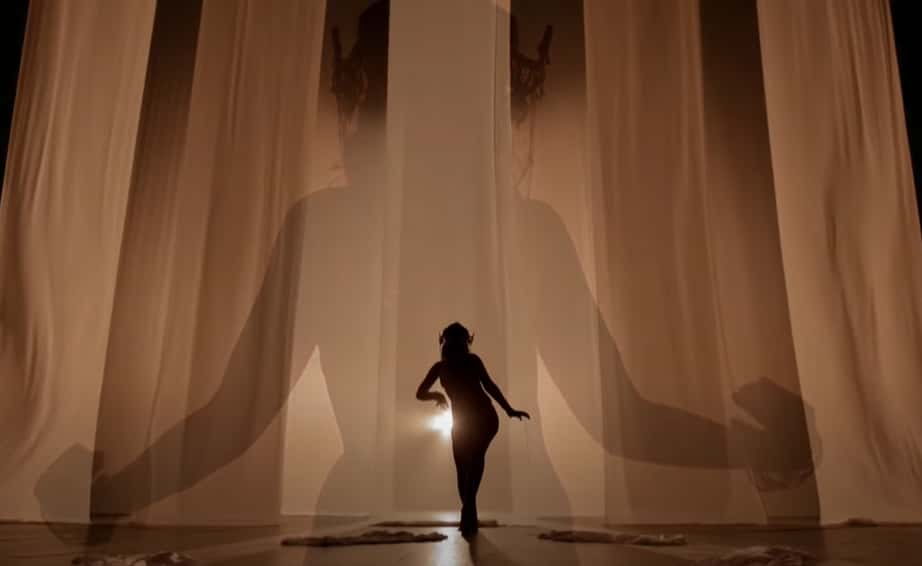 Mata Hari (2016–2017), Star Media
Mata Hari (2016–2017), Star Media
38. She Became a Jet-Setting Courtesan
By the time Mata Hari hung up her bejewelled headdresses and flimsy dance costumes, she’d already begun transitioning to her next role: Courtesan. Bolstered by her seductive street cred, Hari regularly ensnared prominent politicians, businessmen, generals, and daredevil pilots. These relationships led her to travel around Europe on the arm of one figure or another, wowing people with her seductive style. At this point, Hari had landed on her feet—but soon, the rug would be pulled out from under her.
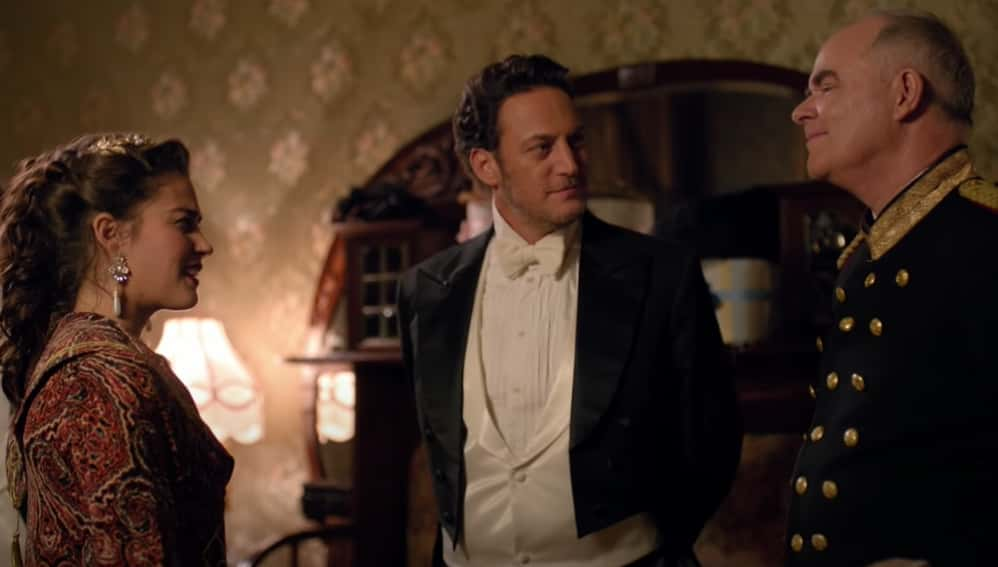 Mata Hari (2016–2017), Star Media
Mata Hari (2016–2017), Star Media
39. She Knew Her Fate
Say what you want about her, Mata Hari was no dummy. When she talked to her brother about her choices, she knew exactly what was going on. In Hari's own words, she either got her daughter back and "behaved like a decent mother" or, if that didn't happen, she'd "enjoy the beautiful life being offered to me here". Chillingly, her letter ends with this prophetic statement: "I know that life ends in tragedy". She was right. Mata Hari's days as a courtesan paved the way for her jaw-dropping final act as a doomed spy.
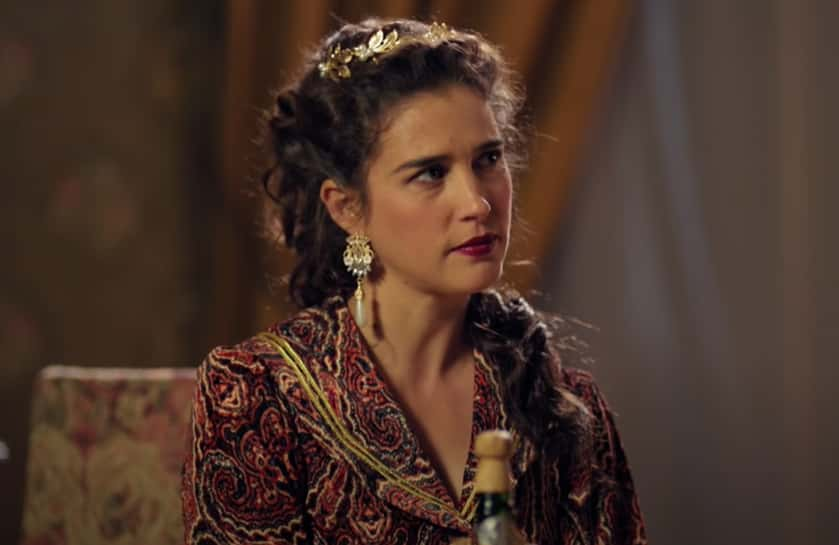 Mata Hari (2016–2017), Star Media
Mata Hari (2016–2017), Star Media
40. She Met Her Great Love
In 1914, WWI began. By 1918, it would claim the lives of thousands of people—including Mata Hari. While in her 40s, she struck up a passionate romance with 23-year-old Captain Vadim Maslov. Of all the men that Hari entranced, she described only him as the love of her life. Sadly, Hari's rollercoaster of a life didn't slow down when it came to Maslov.
 Mata Hari (2016–2017), Star Media
Mata Hari (2016–2017), Star Media
41. She Made a Deal with the Devil
In 1916, Hari's lover joined the Western Front as a pilot, only to be shot down while fighting the Germans. Among his many horrific injuries, Maslov lost his eyesight in the crash. When Mata Hari heard about her lover's wounds, she wanted to visit him, but because she was a Dutch citizen, her status was blocked. The Netherlands were officially neutral, making it impossible for Hari to enter Germany. She was distraught at the thought of not seeing Maslov, so when France’s intelligence agency approached Hari with a way to get into the country, she simply couldn't refuse.
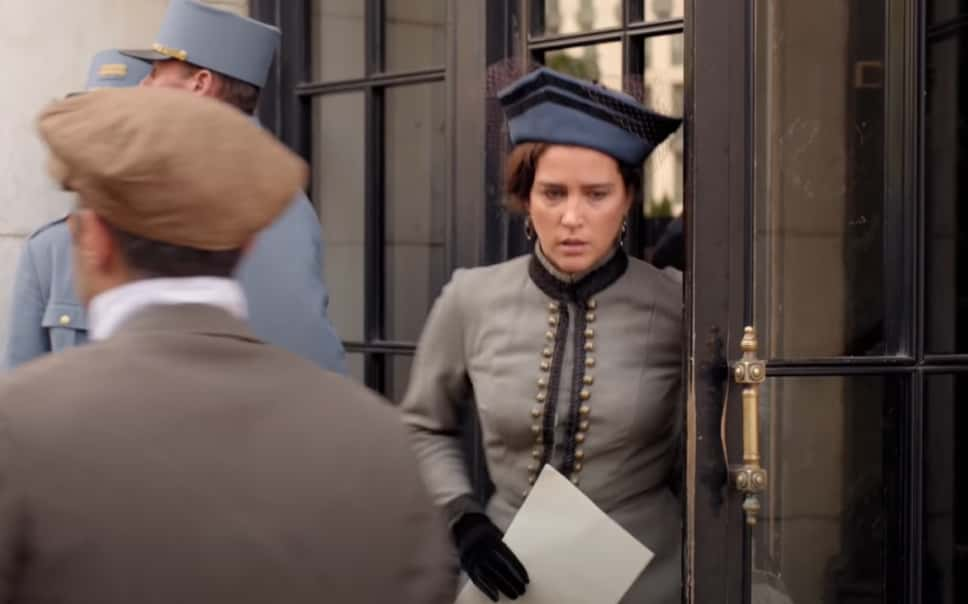 Mata Hari (2016–2017), Star Media
Mata Hari (2016–2017), Star Media
42. She Became a Spy
The French agent Georges Ladoux offered Hari the chance to see her injured lover—but there was one condition. Before she got in, she had to visit her old flame Crown Prince of Germany (she'd privately performed for him many times before WWI). Once in his company, she'd seduce him and get crucial information about Germany's WWI strategies that only the son of Kaiser Wilhelm II would know. Spoiler: This did not go as planned.
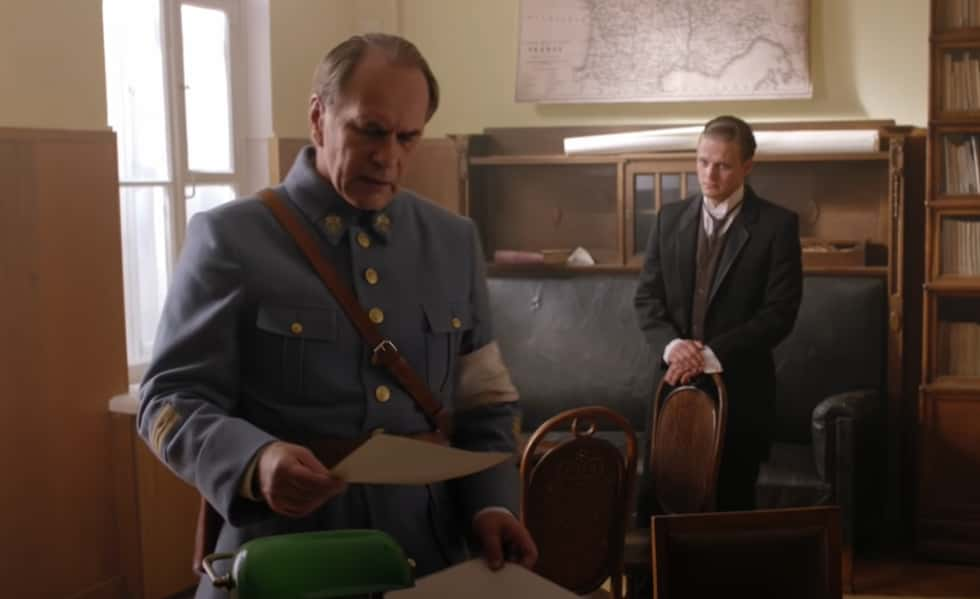 Mata Hari (2016–2017), Star Media
Mata Hari (2016–2017), Star Media
43. Her Mission Was Cursed
There was a great irony to the French trading confidential German intel with Hari's visitation rights (and, allegedly, one million francs). The Crown Prince had next to nothing to do with how the Germans fought WWI! He was simply a figurehead with a great PR campaign. Evidently, the French bought into the propaganda. They sent one of Europe's most famous courtesans to get information out of him, not knowing their plan was doomed from the start.
44. There Was a Conspiracy
This is where the historical gets murky and very, very interesting. According to some sources, Mata Hari made it to Madrid and contacted one of the Crown Prince's attachés. In one version of events, she did so to fulfill her end of the deal with France—she was using the attaché to set up a meeting with the Crown Prince. In another version—the more notorious version—Mata Hari met up with her contact and promptly offered to turn her back on the French. With that, she became a double agent for the Germans.
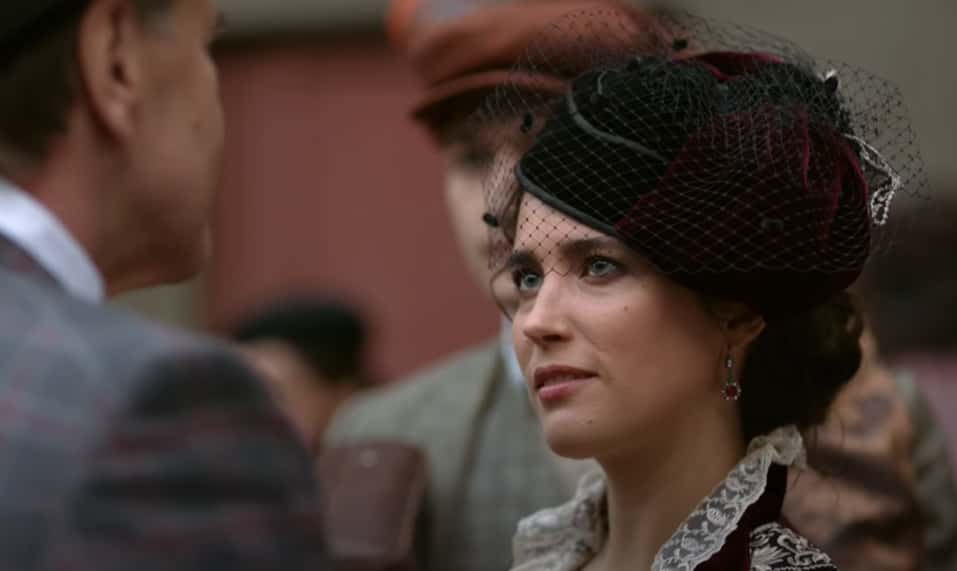 Mata Hari (2016–2017), Star Media
Mata Hari (2016–2017), Star Media
45. Her Motivations Raised Eyebrows
To this day, people still don't know why Mata Hari offered to betray France. Some argue that she did it out of plain old greed. Others say that she was trying to earn enough money to whisk both herself and her lover Maslov out of Europe. But the most intriguing reason for Mata Hari's infamous duplicity is this: She wasn't betraying the French at all. Strap in: This is where Mata Hari's story goes off the rails.
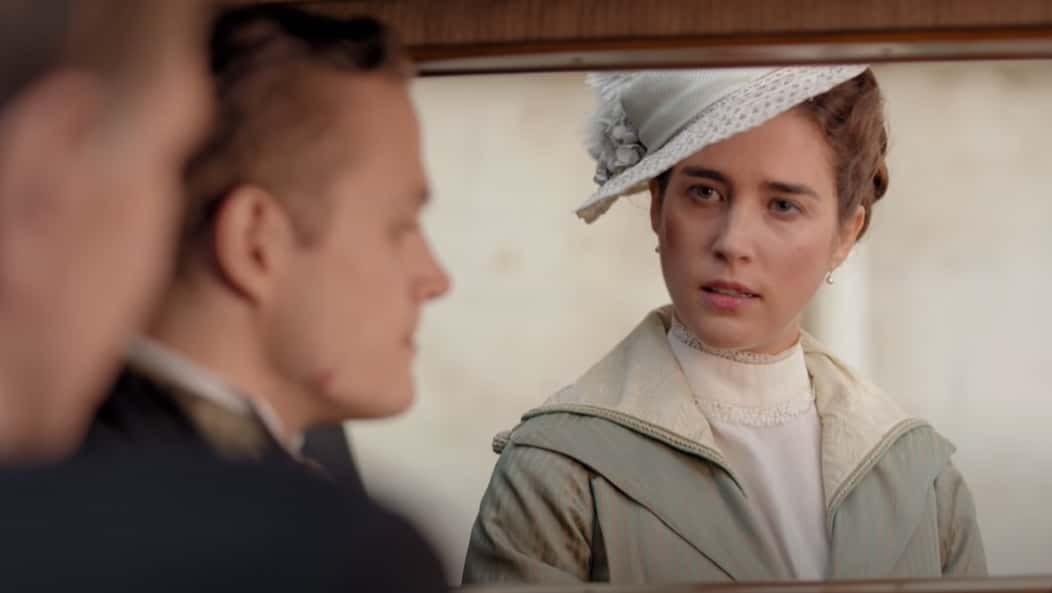 Mata Hari (2016–2017), Star Media
Mata Hari (2016–2017), Star Media
46. She Got a Bad Reputation
Modern scholars now wonder if Mata Hari actually deserves her reputation as an infamous traitor. Instead, they believe she was simply following French orders. According to these sources, French intelligence agents like Georges LaDoux told Hari that offering to become a German spy was a sure-fire way to gain access to the Crown Prince. So, did she offer to turn tail on France for money, for love, or as part of an agreed-upon strategy? No matter which reason you believe, we can all agree that things went terribly.
 Mata Hari (2016–2017), Star Media
Mata Hari (2016–2017), Star Media
47. Her Cover Was Blown
In January 1917, French agents intercepted and decoded a series of messages from German intelligence. The messages discussed a spy identified only as H-21. However, the information on H-21 was almost a mirror image of Mata Hari’s notorious personal life. With these decoded messages in hand, it wasn't hard for the French to put two and two together. They immediately honed in on Mata Hari. But from the get go, there were some very strange circumstances surrounding Mata Hari's big reveal as a German spy.
 Mata Hari (2016–2017), Star Media
Mata Hari (2016–2017), Star Media
48. She Was Betrayed
First, the French gauged Mata Hari's identity very quickly—as in suspiciously quickly. In fact, it turned out that the Germans were using a code that they fully knew had already been cracked by the French. As well, the content of the messages made it plain as day that they wanted people to associate H-21 with Mata Hari. These odd details are why most people believe that the Germans didn't "accidentally" reveal Hari’s identity as a double agent. They did it intentionally.
49. Her Boss Destroyed Her
But why would the Germans expose their own spy's identity? Some people think they did it because Hari hadn’t actually given them any useful information. Her intel on the French supposedly consisted of nothing but gossip on the intimate lives of politicians and generals. In frustration, General Walter Nicolai of the German Intelligence purposefully exposed Hari's double espionage to the French in the most aggressive “You’re fired” in human history.
 Mata Hari (2016–2017), Star Media
Mata Hari (2016–2017), Star Media
50. She Wasn't What People Think
The Germans weren't the only ones irritated at Mata Hari. Despite her reputation as a cunning lady spy, she was actually pretty awful at her job. She regularly sent uncoded messages to her supervisor Agent Georges Ladoux, and when the British captured her, she blew her own cover and admitted she was spying for the French! Mata Hari's staggering ineptitude gave the French plenty of reasons to want her out of the field. That might help explain how they treated their ex-agent at her trial.
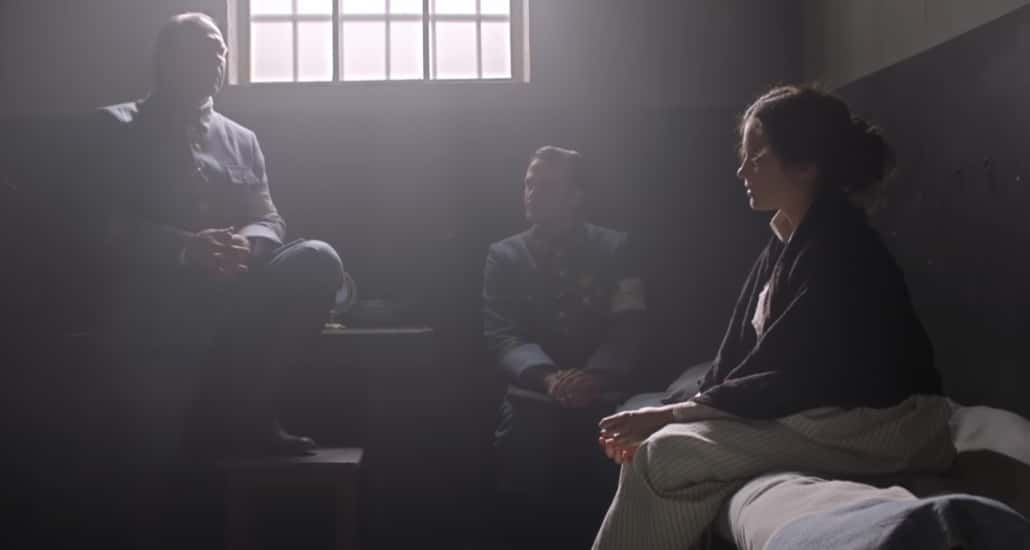 Mata Hari (2016–2017), Star Media
Mata Hari (2016–2017), Star Media
51. She Had Blood on Her Hands
At her trial, the court accused Mata Hari of committing double espionage and causing a staggering 50,000 fatalities. When she heard these charges, Hari was visibly distraught. Her reaction eventually became legend. She supposedly gasped and said “A harlot? Yes, but a traitor, never!” Sadly, that defense didn’t seem to compel many people—including Hari's great love, Maslov. He soon dealt her a brutal betrayal.
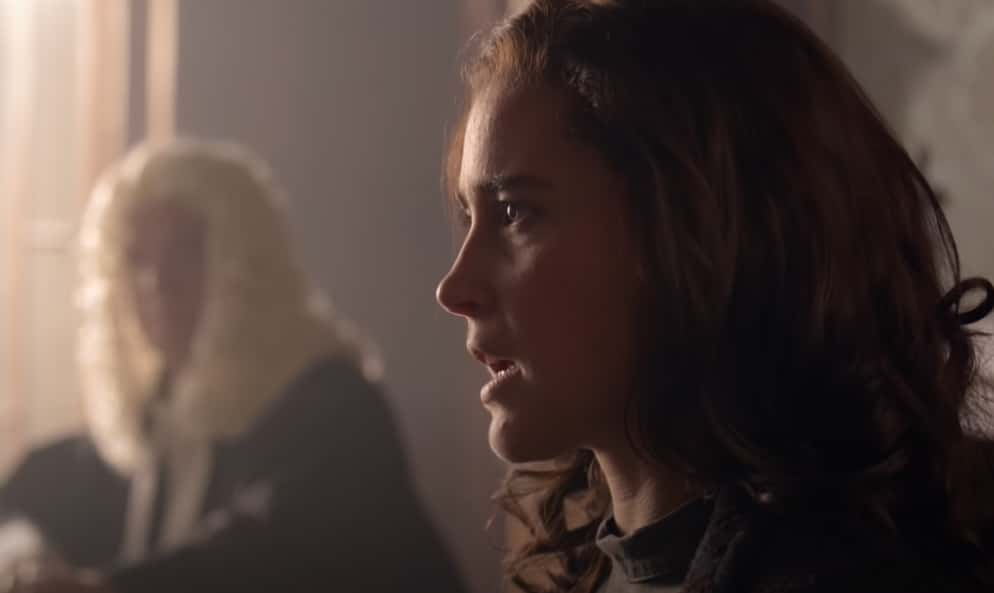 Mata Hari (2016–2017), Star Media
Mata Hari (2016–2017), Star Media
52. She Lost Her Lover
In a terrible twist, Hari's blinded lover Captain Maslov was evidently no longer interested in his old flame. He coldly refused to testify on Hari's behalf. For her part, Mata Hari was supposedly so devastated at this betrayal that when she heard of Maslov's changed attitude, she fainted on the spot.
 Mata Hari (2016–2017), Star Media
Mata Hari (2016–2017), Star Media
53. Her Allies Abandoned Her
At Mata Hari's trial, the prosecutor brought up the now-infamous "H-21" messages, then bolstered that evidence with the "invisible ink" they found in her room (Hari said it was make-up) and of course, Hari's old flame, the German business tycoon Herr Kepert. As the French said, if Hari cozied up to the Germans once, what would stop her from doing it again? But the biggest "evidence" in the case against Hari was her temptress past. Did this have anything to do with her espionage? No it didn't—but that didn't matter. The judge sentenced Mata Hari to life's end.
 Mata Hari (2016–2017), Star Media
Mata Hari (2016–2017), Star Media
54. She Claimed To Be Innocent
Despite her legacy as a traitor, Hari maintained her innocence during her imprisonment, trial, and execution. However, she did so with a curious qualifier. After a lengthy interrogation, Hari admitted that she accepted some money from the Germans but only passed on trivial information. She insisted that this one indiscretion didn't make her a traitor, just an imperfect person. Was she right or wrong? We leave it up to you to decide. Either way, Mata Hari always maintained that she was nowhere near the mastermind that her accusers made her out to be, and these days, most historians actually agree with her (more on this later).
55. Her Final Months Were Awful
Despite rumors that Mata Hari spent her final months bathing in milk, performing dances, and receiving bon bons and bouquets from adoring fans, in reality, her final months couldn't have been further from her glamorous roots. Her rat-filled cell was absolutely filthy and inmates were so on-edge that loud fights would occur almost every day. It's no wonder that she tried to escape in any way possible.
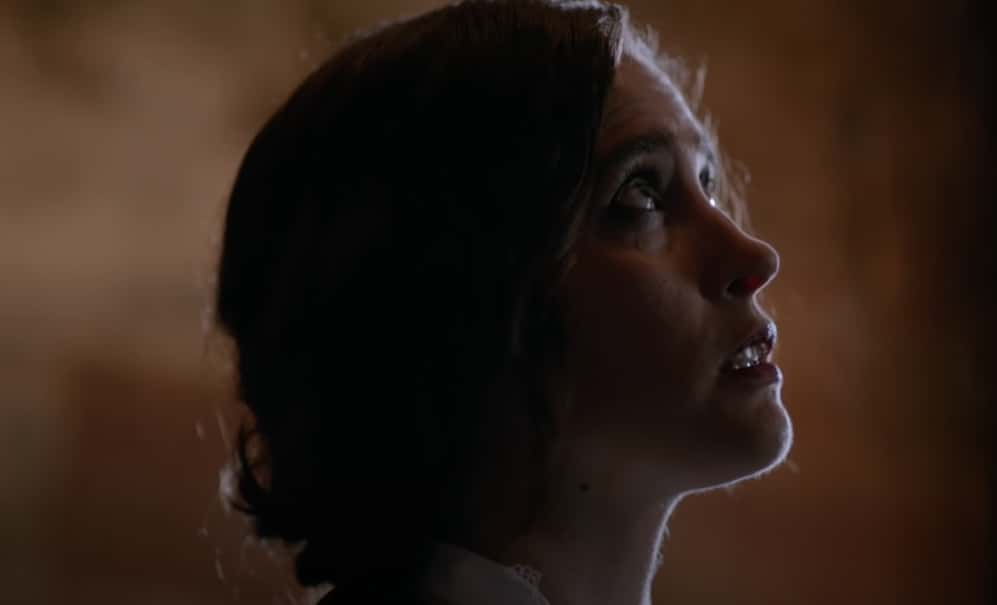 Mata Hari (2016–2017), Star Media
Mata Hari (2016–2017), Star Media
56. She Tried to Escape
Allegedly, Hari spent her time in confinement devising three different escape plans. One of them involved a doctor claiming that she was pregnant, which would delay her execution for nine months. Another plan involved bribing the firing squad to use blanks, bury Hari in a shallow grave, and then have her dug up and snuck out. As you can guess, none of these plans succeeded.
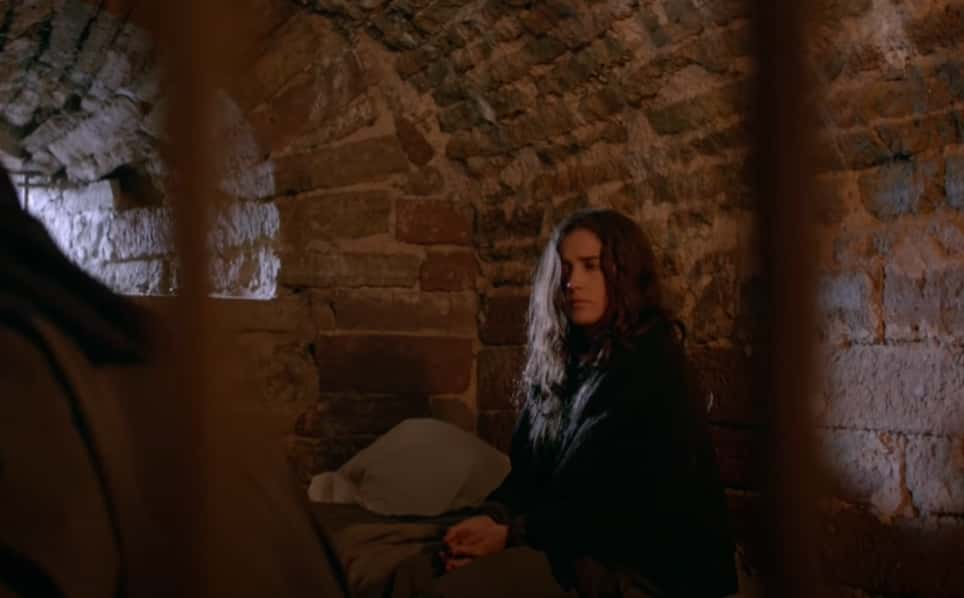 Mata Hari (2016–2017), Star Media
Mata Hari (2016–2017), Star Media
57. Her Time Was Up
After spending three months in a squalid cell, Mata Hari learned that her time was up. When the guards told her the date of her execution, she was numb with shock, simply repeating to herself "It's impossible, it's impossible".
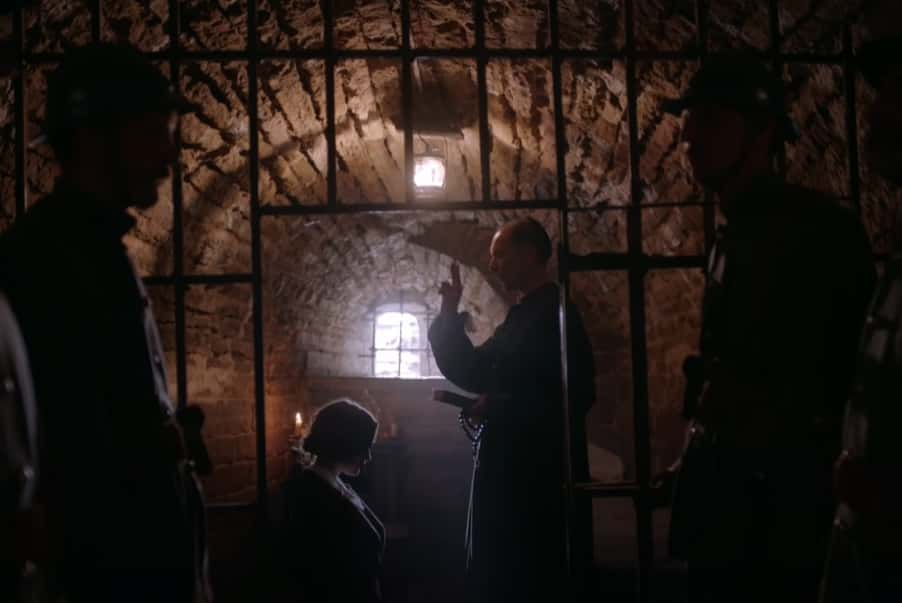 Mata Hari (2016–2017), Star Media
Mata Hari (2016–2017), Star Media
58. She Met Her Maker
After a lifetime of intrigue, Mata Hari breathed her last in the early morning hours of October 15, 1917. According to the testimony of journalist Henry Wales, Hari refused to be blindfolded as she faced the firing squad. Instead, she stoically said "I'm ready". She did not flinch as the men opened fire, and even after she’d been struck, her face did not change expression.
 Mata Hari (2016–2017), Star Media
Mata Hari (2016–2017), Star Media
59. Her Final Words Are Legendary
In one version of Mata Hari's execution, she valorously exclaimed her final words: "I understand how to face my end without showing any signs of fragility. You are about to witness a courageous conclusion!"
 Mata Hari (2016–2017), Star Media
Mata Hari (2016–2017), Star Media
60. She Was Stylish to the End
Regrettably, for those with an appetite for a more sensational tale, Wales makes no mention of Mata Hari supposedly undressing to her bare form to convince the men in uniform not to assault her (as some resources have suggested she did). She did, however, do something much more badass. Staying true to her showgirl roots, Mata Hari used her final moments to send a kiss to her executioners.
However, Hari's story doesn't end with her demise.
 Mata Hari (2016–2017), Star Media
Mata Hari (2016–2017), Star Media
61. Things Didn't Add Up
In the days after Hari's execution, the French intelligence community began to question the way they treated their supposed double agent. They learned that the man who lead the charge against her, Agent Georges Ladoux, had a few secrets of his own. It turned out that in his intense quest to punish Mata Hari, Ladoux might have gone too far to prove she was a double agent. How far? Well, "fabricating evidence" far. And things only got more complicated from there.
62. She Was a Scapegoat
Why would Ladoux want to frame his old colleague Mata Hari? The answer is simple: Pure old-fashioned scapegoating. During WWI, France was not putting its best foot forward on the international stage. Their forces mutinied, they lost major battles, and they blew through their resources. In sum, the country looked like a mess. So it would be very convenient if they could blame all their problems on one seductress traitor, wouldn't it?
63. The Charges Were Extravagant
Many modern historians now believe that Mata Hari's traitor reputation is trumped up bunk. As evidence, they point out how Ladoux forged evidence to make it look like she was a double agent. They also bring up how France made sure to highly publicize Hari's trial and embellish her espionage activities—despite the fact that by her own admission, she didn't do much, and certainly didn't send 50,000 men to their doom. Heck, even her own prosecutor admitted he wasn't fully convinced of her guilt. Yet, the most significant surprise was yet to come.
 Mata Hari (2016–2017), Star Media
Mata Hari (2016–2017), Star Media
64. Her Accuser Became The Accused
Just four days after Mata Hari's execution, French agents captured a very curious person: Georges Ladoux, the man who most vociferously accused Hari of being a double agent. Ladoux went into custody under an ironic charge: This time around, he was the one being accused of double espionage. While he wasn't found guilty, the charge raised many questions. Was Ladoux the true traitor? Did he set up Mata Hari as his own personal fall guy? Or were things even more sinister?
 Mata Hari (2016–2017), Star Media
Mata Hari (2016–2017), Star Media
65. Questions Linger
Here's an especially dicey part of the whole Mata Hari/Georges Ladoux accuse-o-rama. The French government kept the fact that Ladoux was charged with double espionage secret for a century, only declassifying the documents in 2017. Why hide this detail for so long if it didn't have some bearing on one the country's most notorious espionage trials? Just asking...
66. She Left Chaos In Her Wake
When it comes to Mata Hari, the espionage drama just doesn't stop—even after she was six feet under. In 1921, three long years after her demise, Mata Hari played a critical role in the chilling end of a British agent. During WWI, Henry Noedemaker had met Mata Hari on a ship and tried to sneak into her room to look through her things. Though Hari interrupted him (and slapped the trespasser for good measure), Noedemaker sent a message back to the British. When he ended his own life, his family believed he did so out of guilt. Noedemaker was distraught over the idea that his information led to Hari's execution.
 Mata Hari (2016–2017), Star Media
Mata Hari (2016–2017), Star Media
67. Her Afterlife Was Not Peaceful
After she faced the firing squad, Mata Hari’s body was in for even more infamy. Her body was reportedly used for medical research. Her head was severed from her body, and suffered a far more bizarre fate.
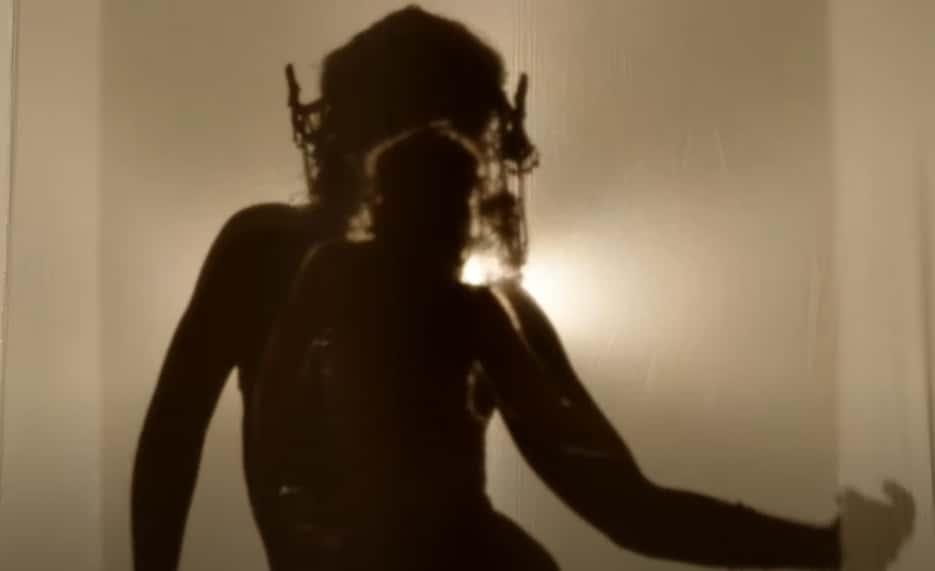 Mata Hari (2016–2017), Star Media
Mata Hari (2016–2017), Star Media
68. A Museum Messed Up Big Time
In a rather disturbing twist, Hari was decapitated, then her head was embalmed, and preserved in Paris’ Museum of Anatomy. However, in 2000, Mata Hari made headlines (pun intended) because her head went missing. In fact, it may have been missing as far back as 1954 without anyone noticing! The reason claimed their relocation in 1954 caused the head to be mislabeled or lost, but either way, it remains missing to this day.
69. She Lives On
The idea of an exotic dancer also serving as a spy turned out to be far too enthralling to pass up. Hari’s life has inspired several films, including a 1931 movie starring Greta Garbo in the lead role, 250 books and biographies, as well as five different stage musicals. Some critics even believe that Mata Hari inspired the character of James Bond. Similar to her, Bond is a charismatic spy, whose "secret" identity seems to be known around the world!
70. Museums Immortalize Her
In Leeuwarden, the Frisian Museum has a “Mata Hari Room” which contains two personal scrapbooks that Hari herself compiled. Not only that, the Museum of Friesland opened their own Mata Hari exhibition in 2017, one hundred years after her execution. While a fire destroyed the house where Mata Hari was born in 2013, a statue of her still stands in her hometown Leeuwarden, near the former address of her birthplace.

